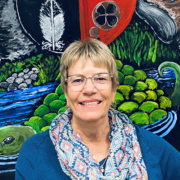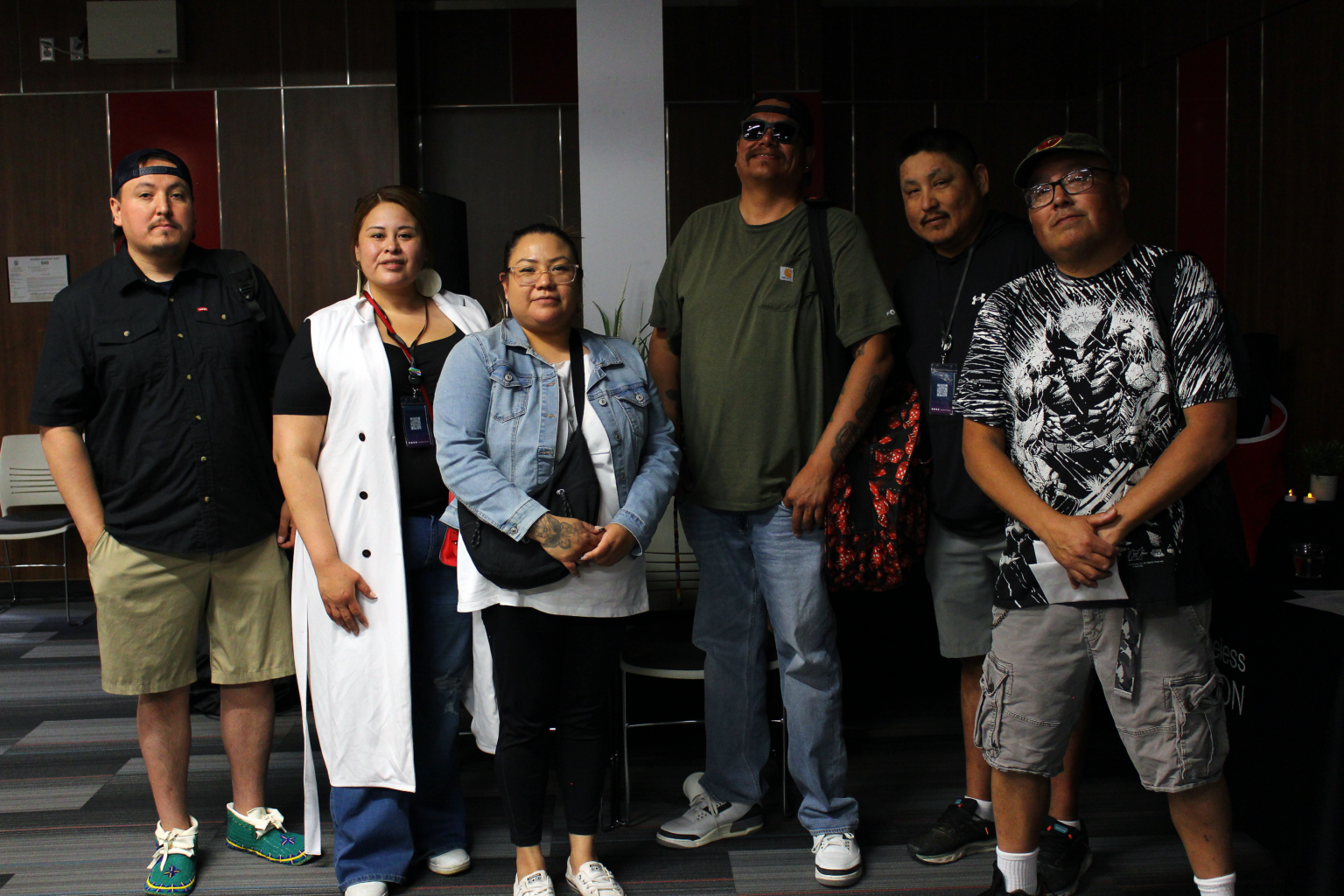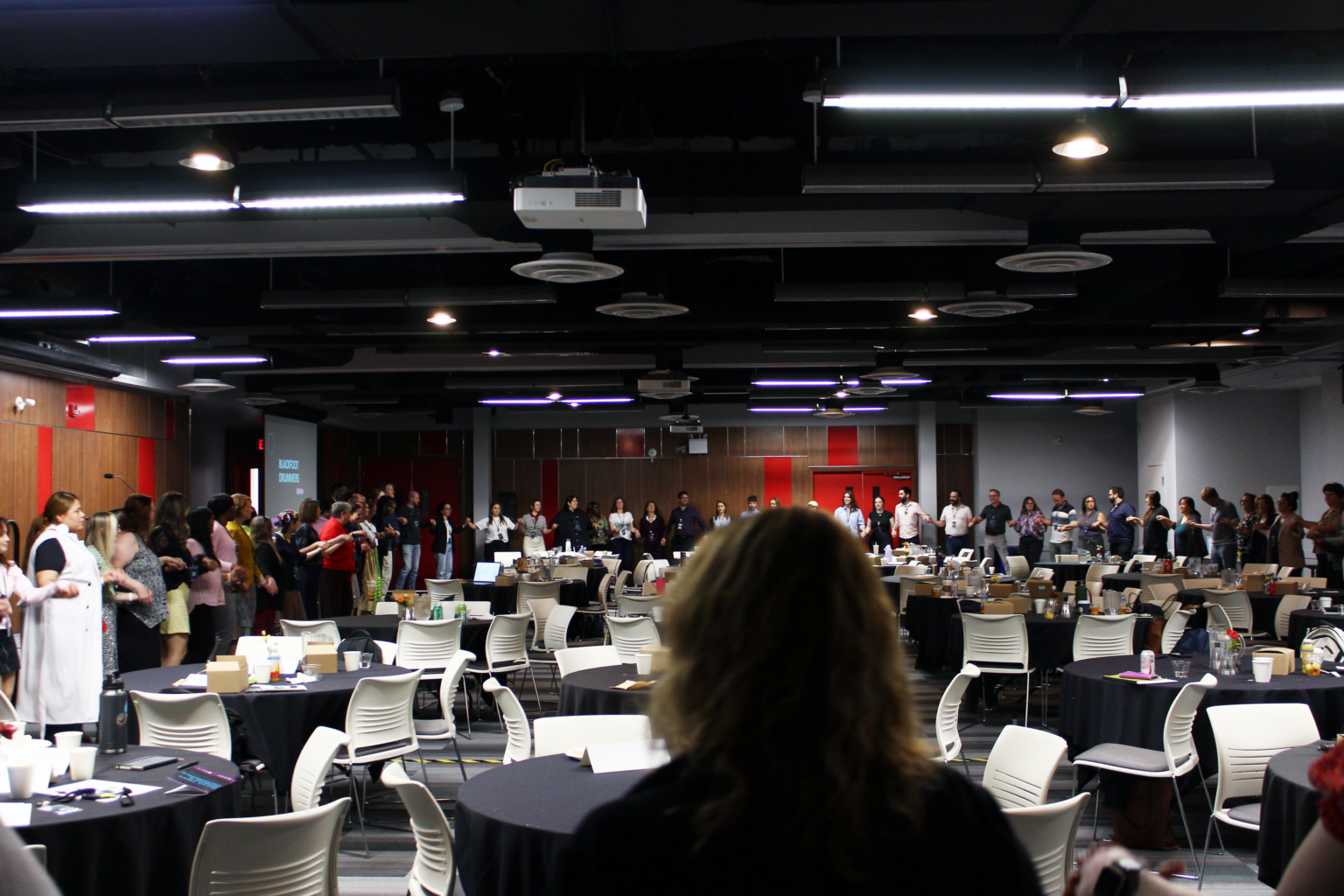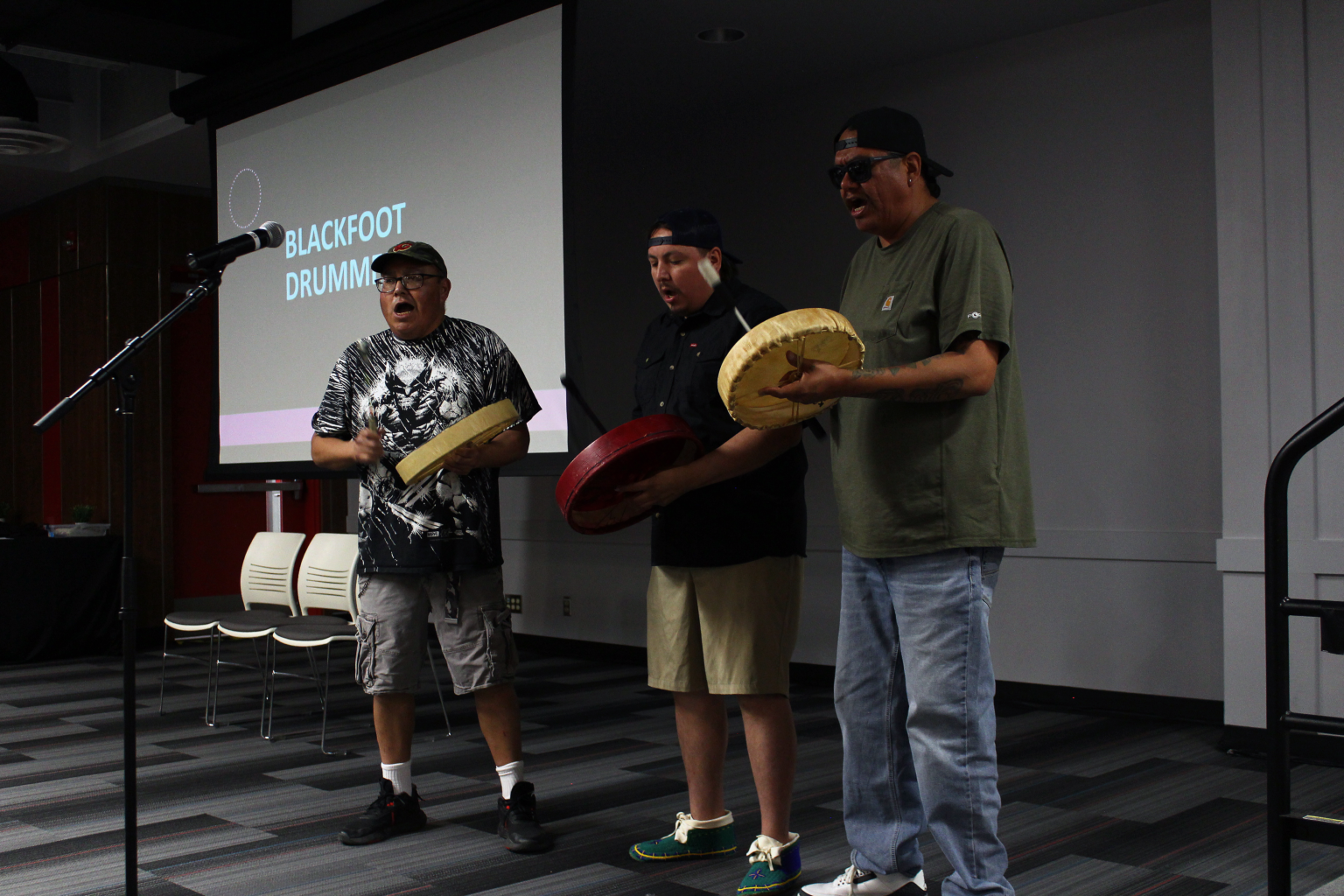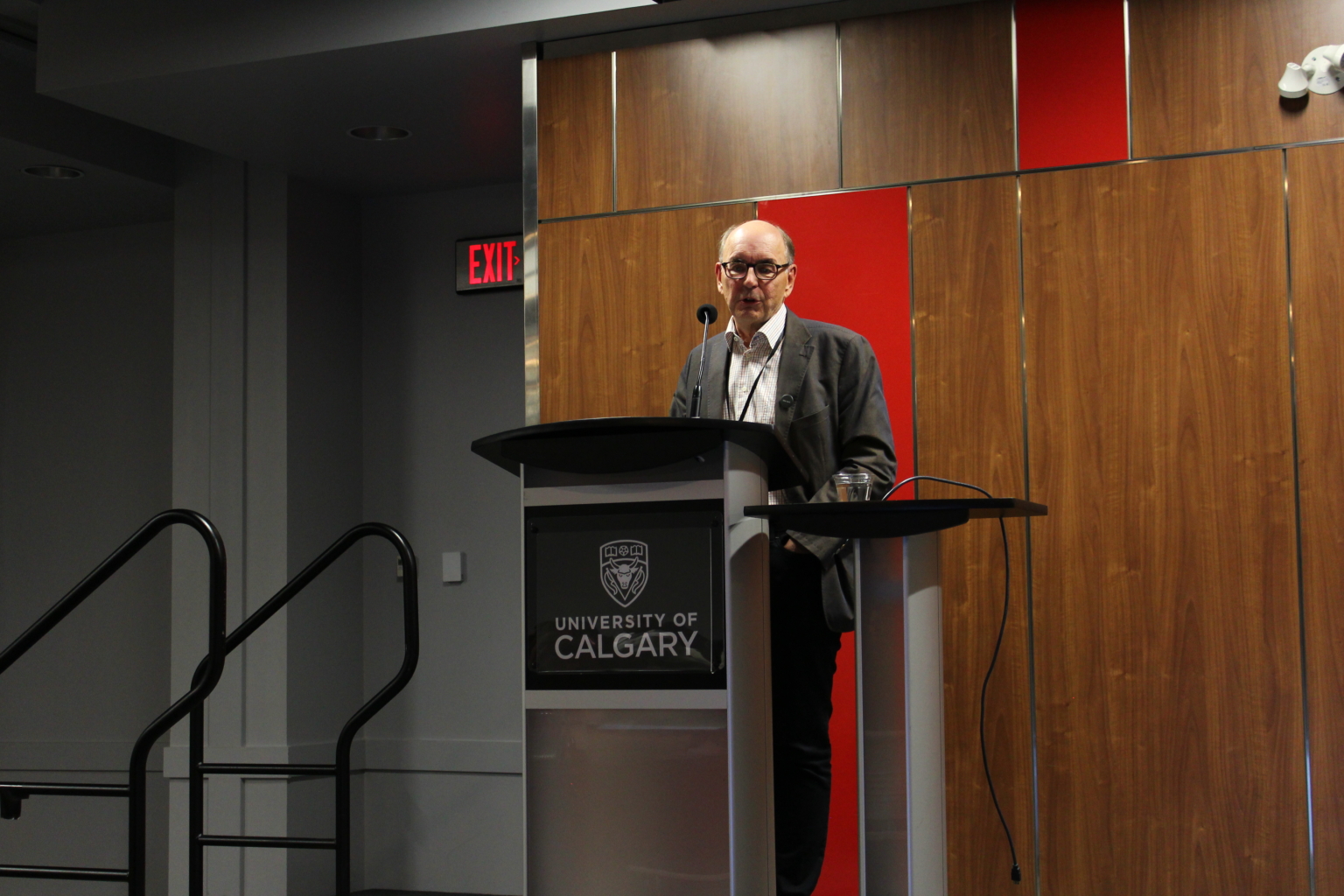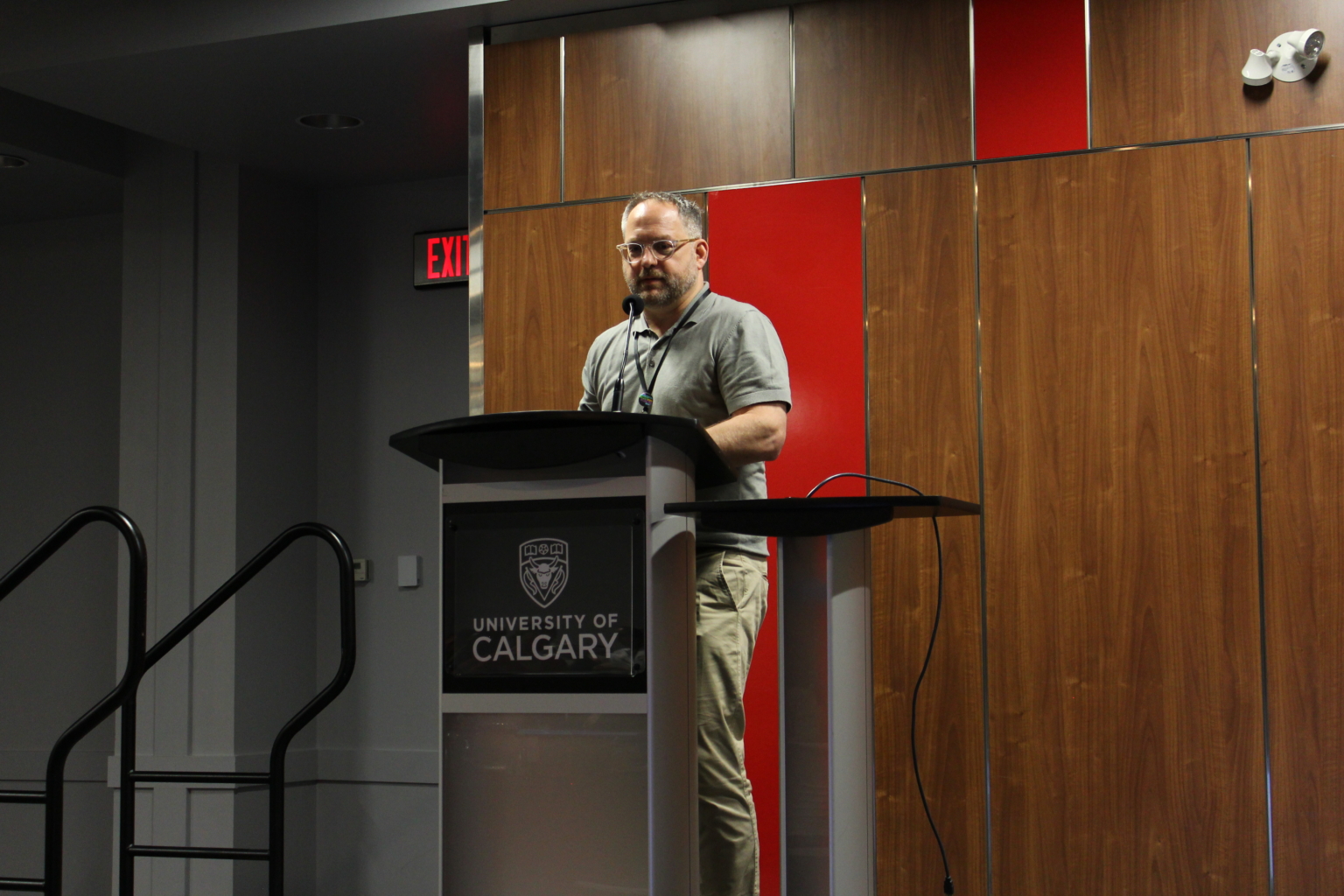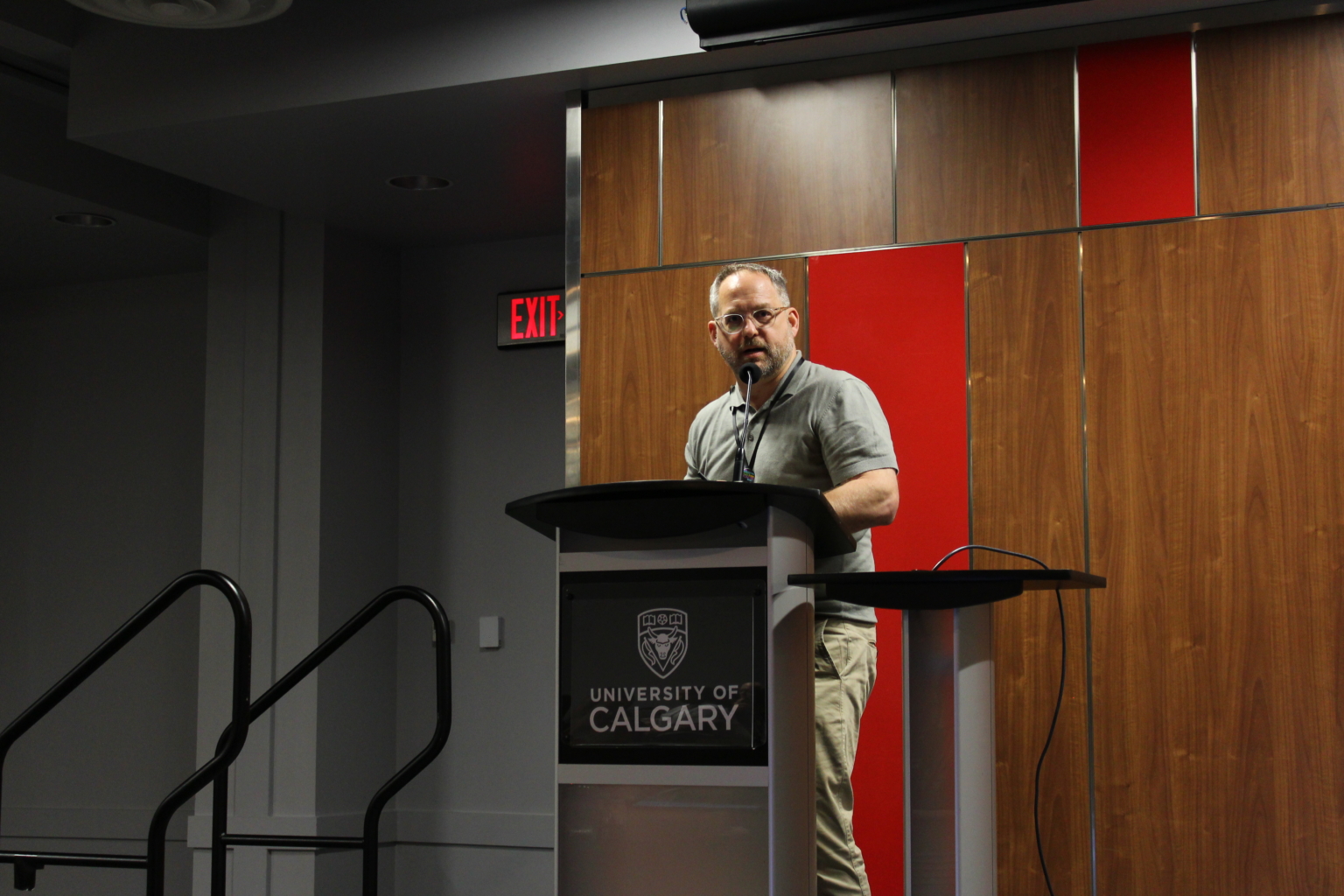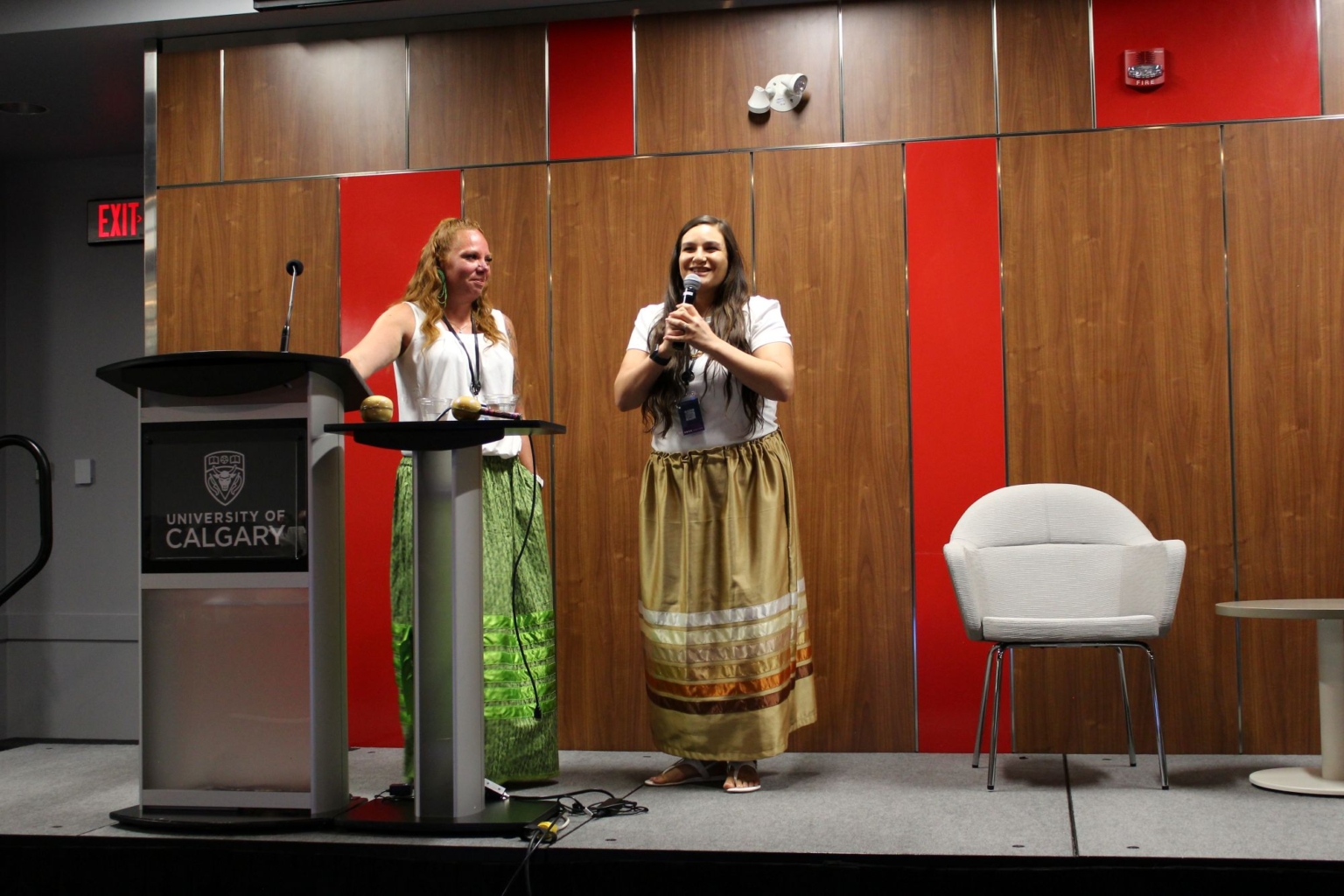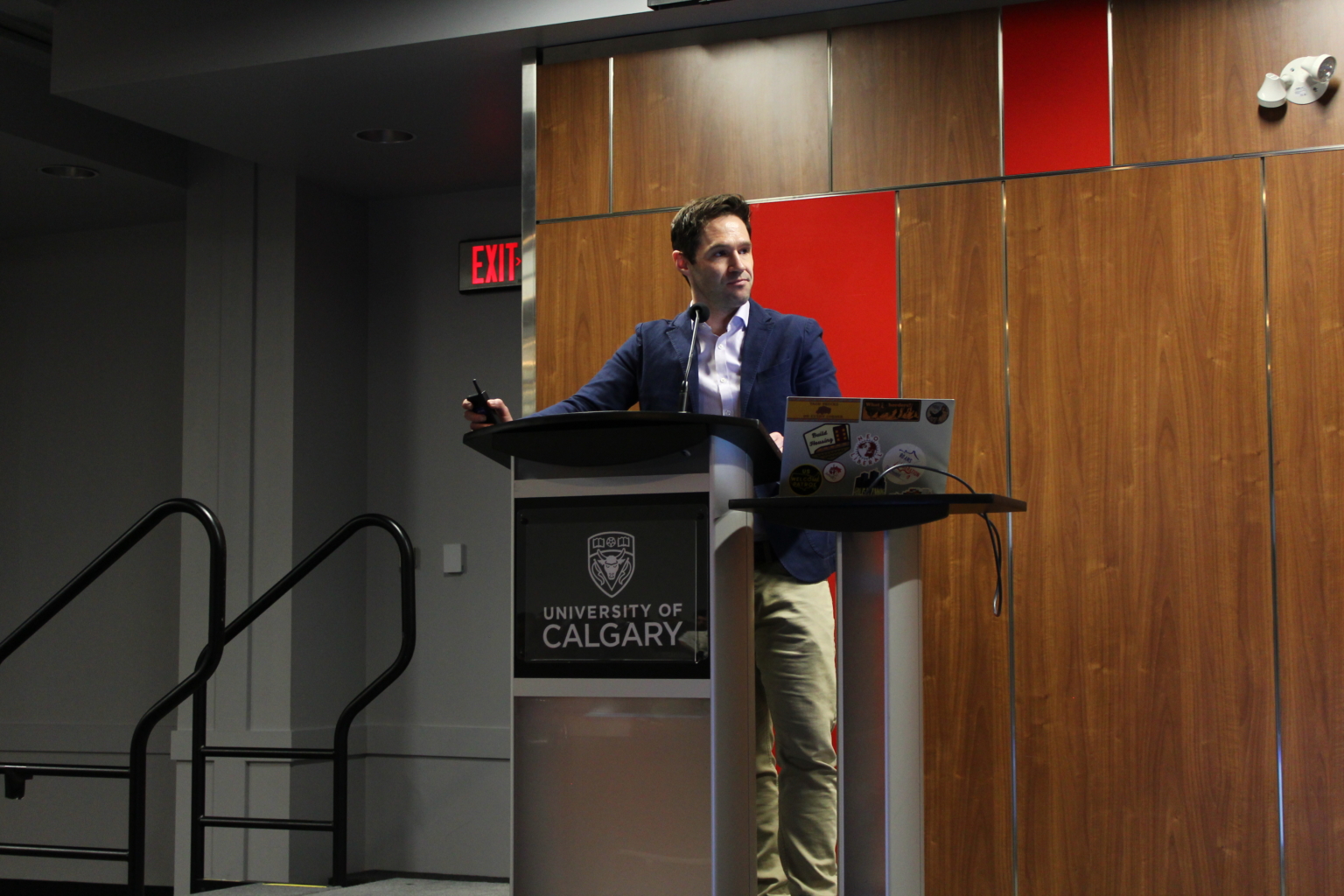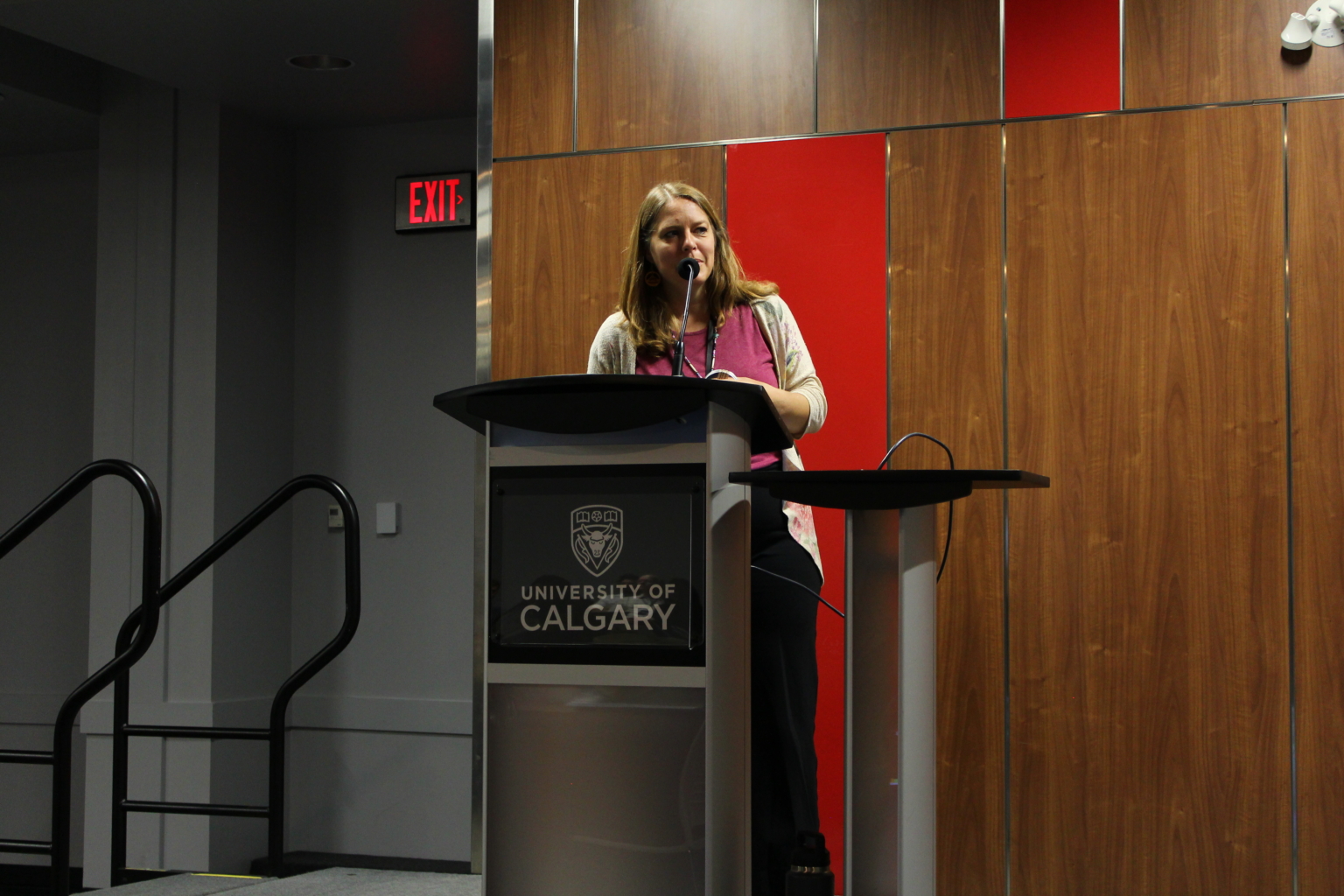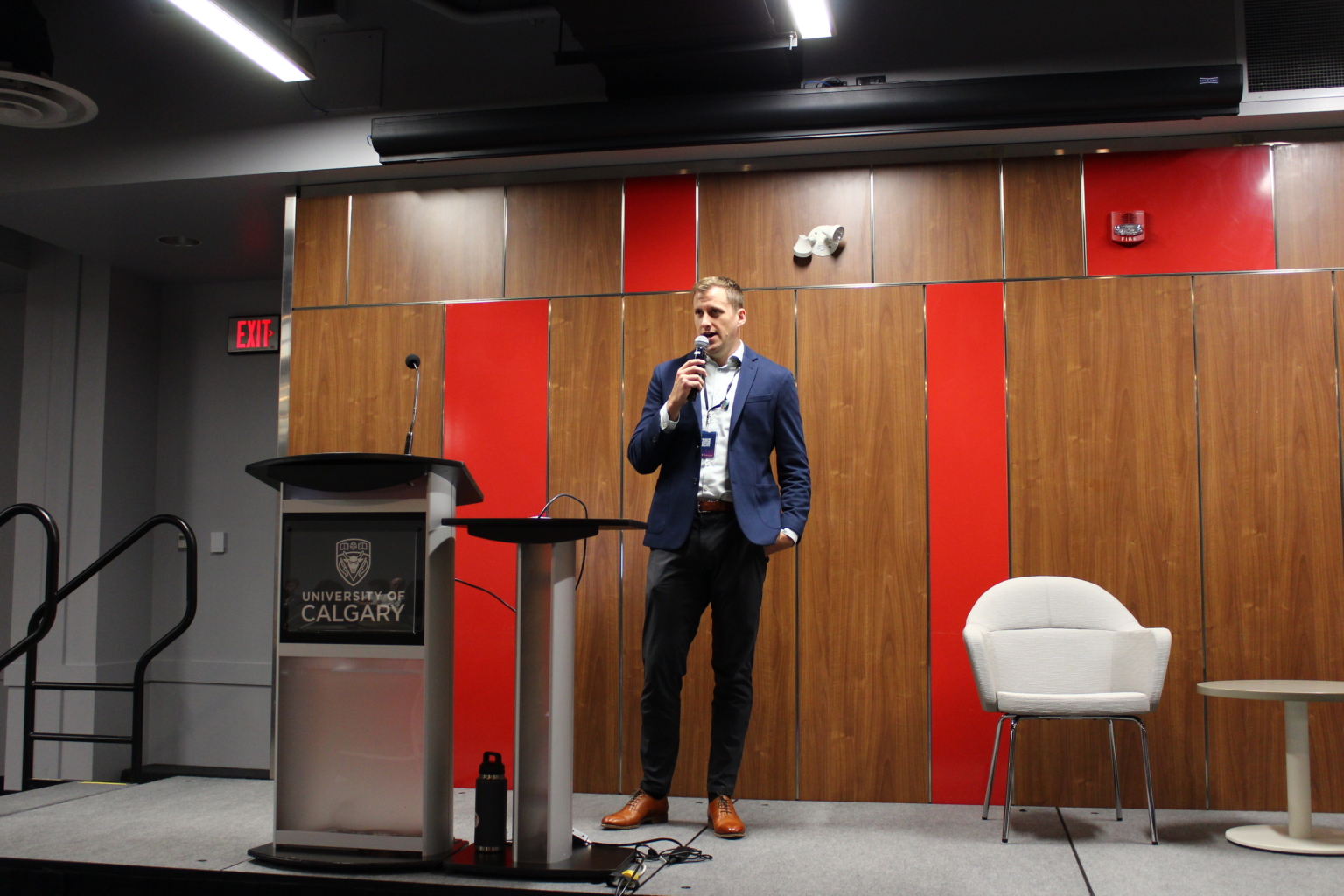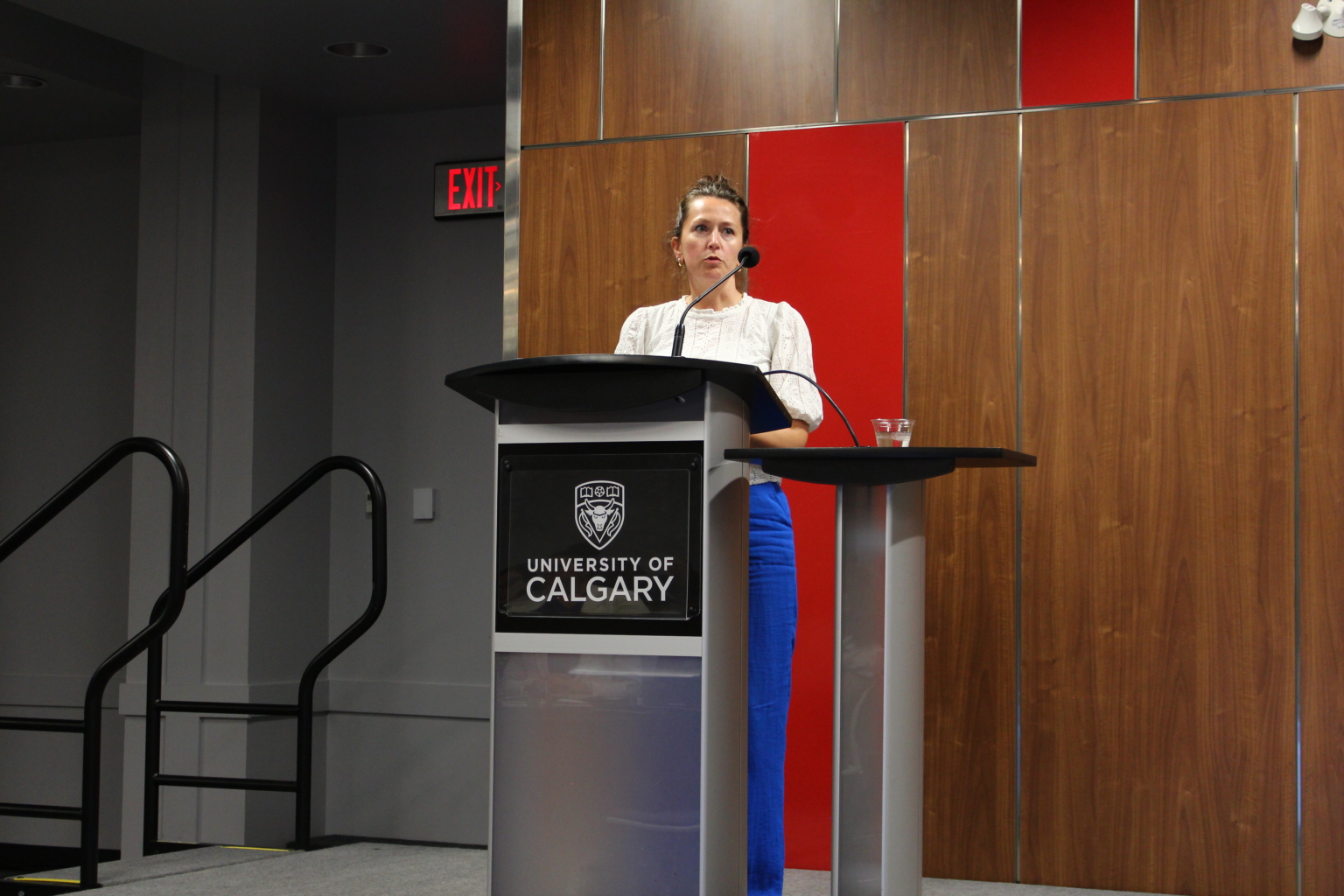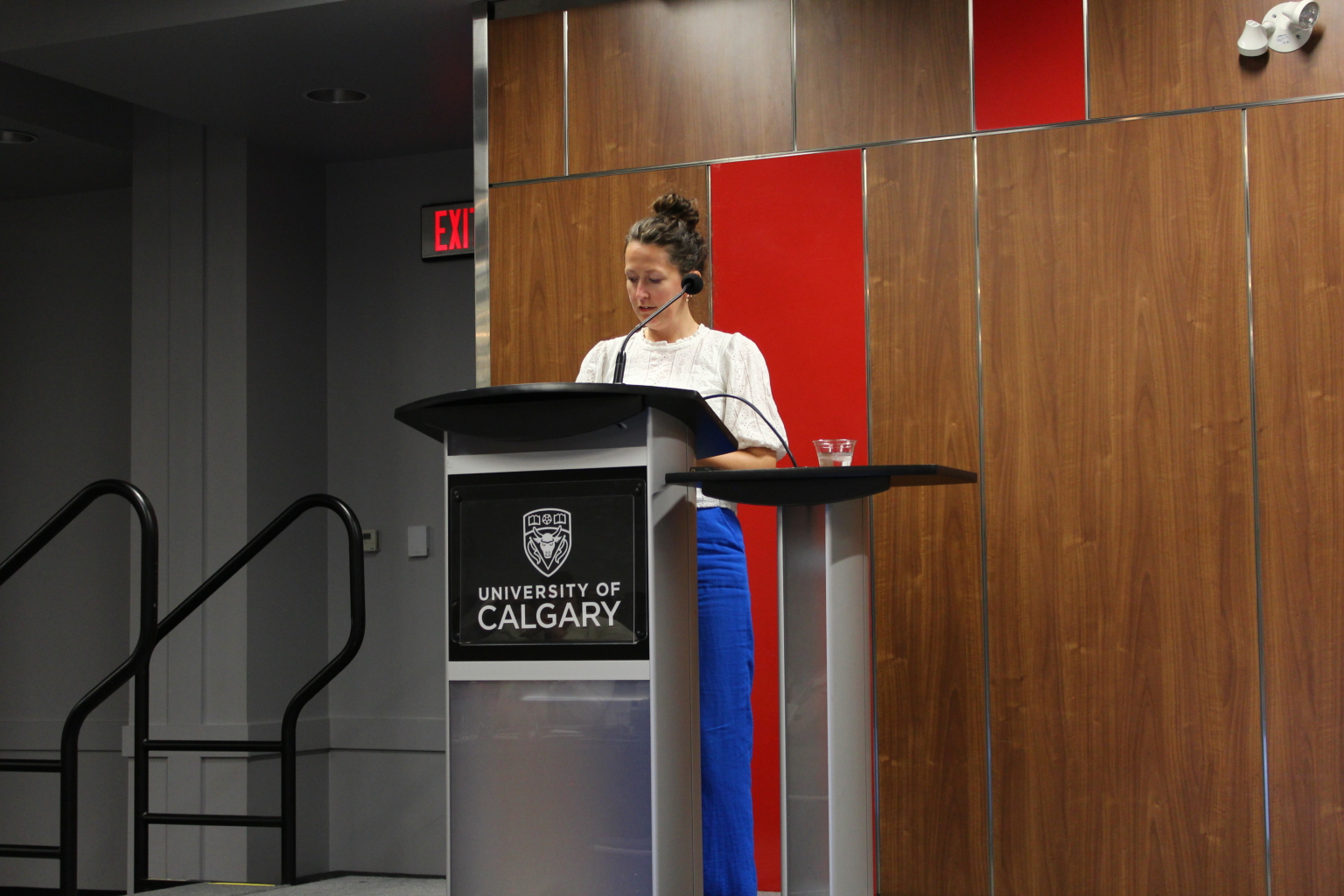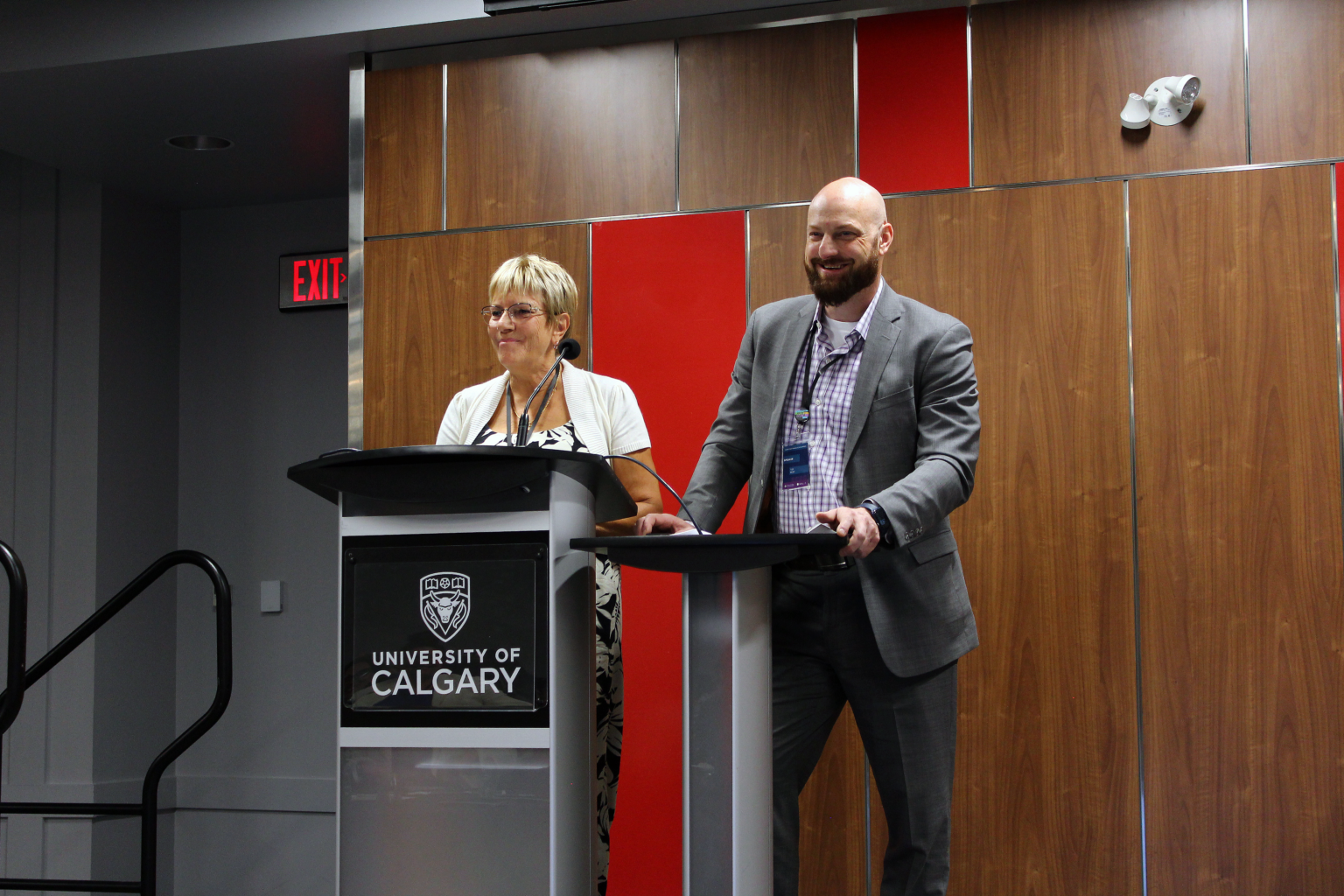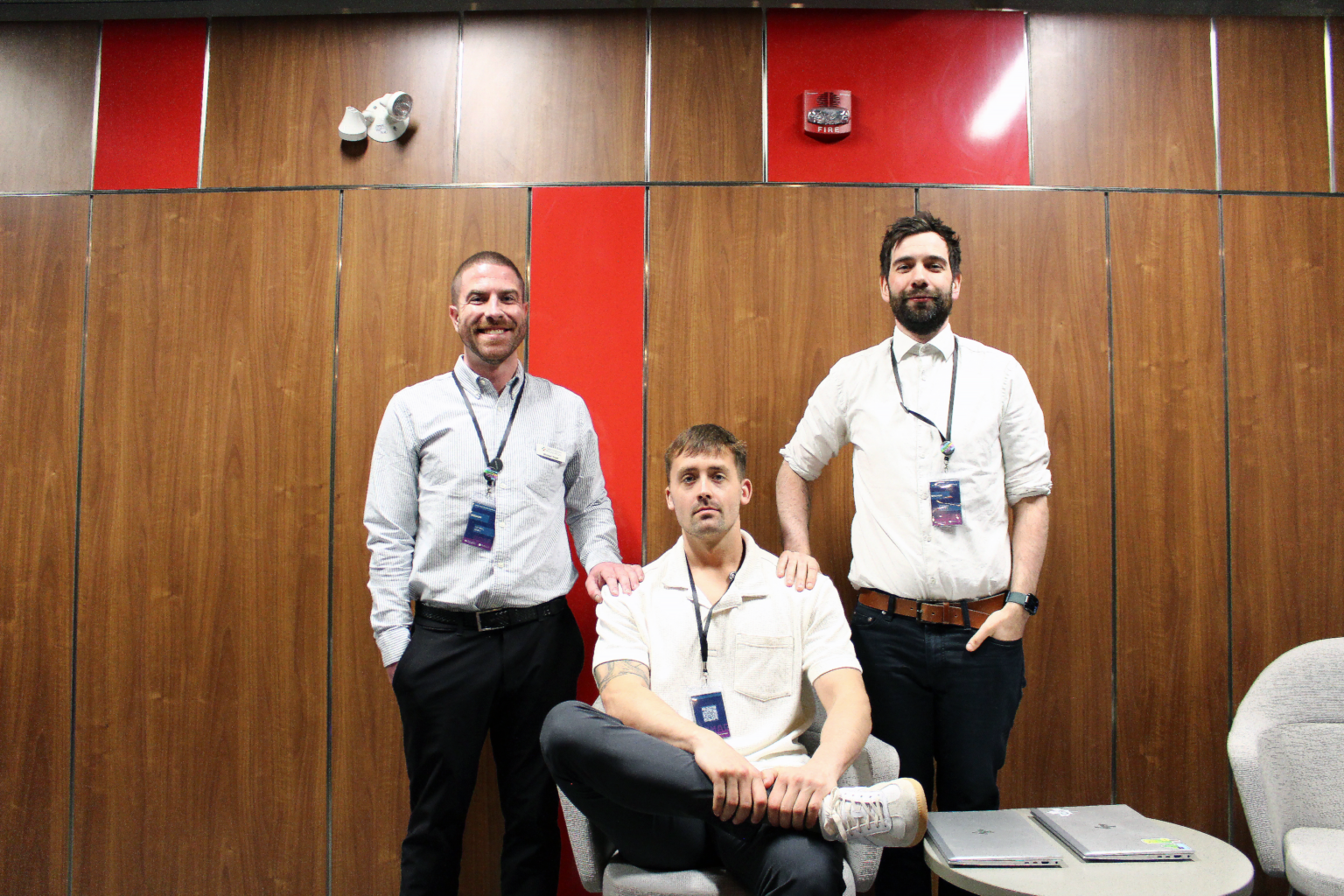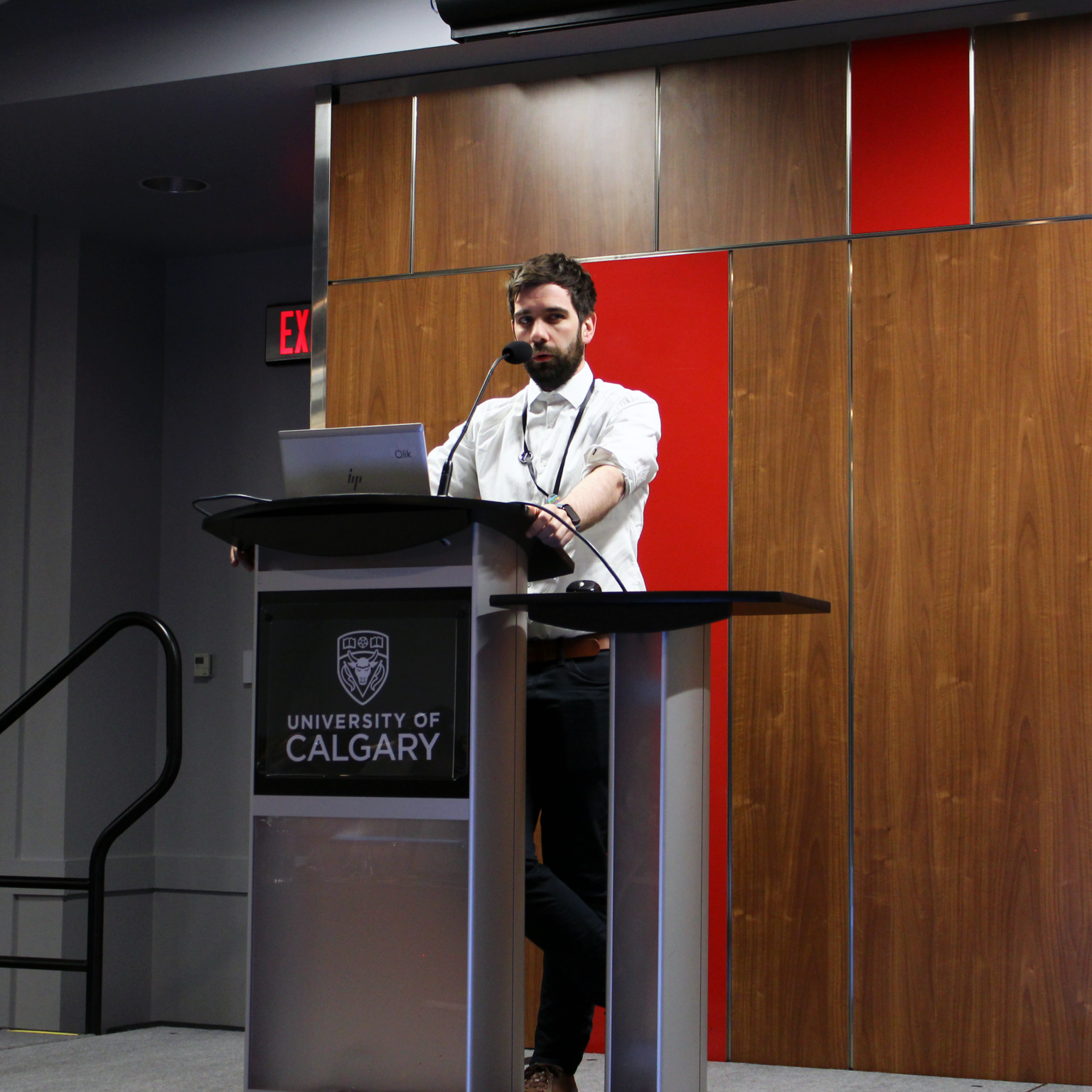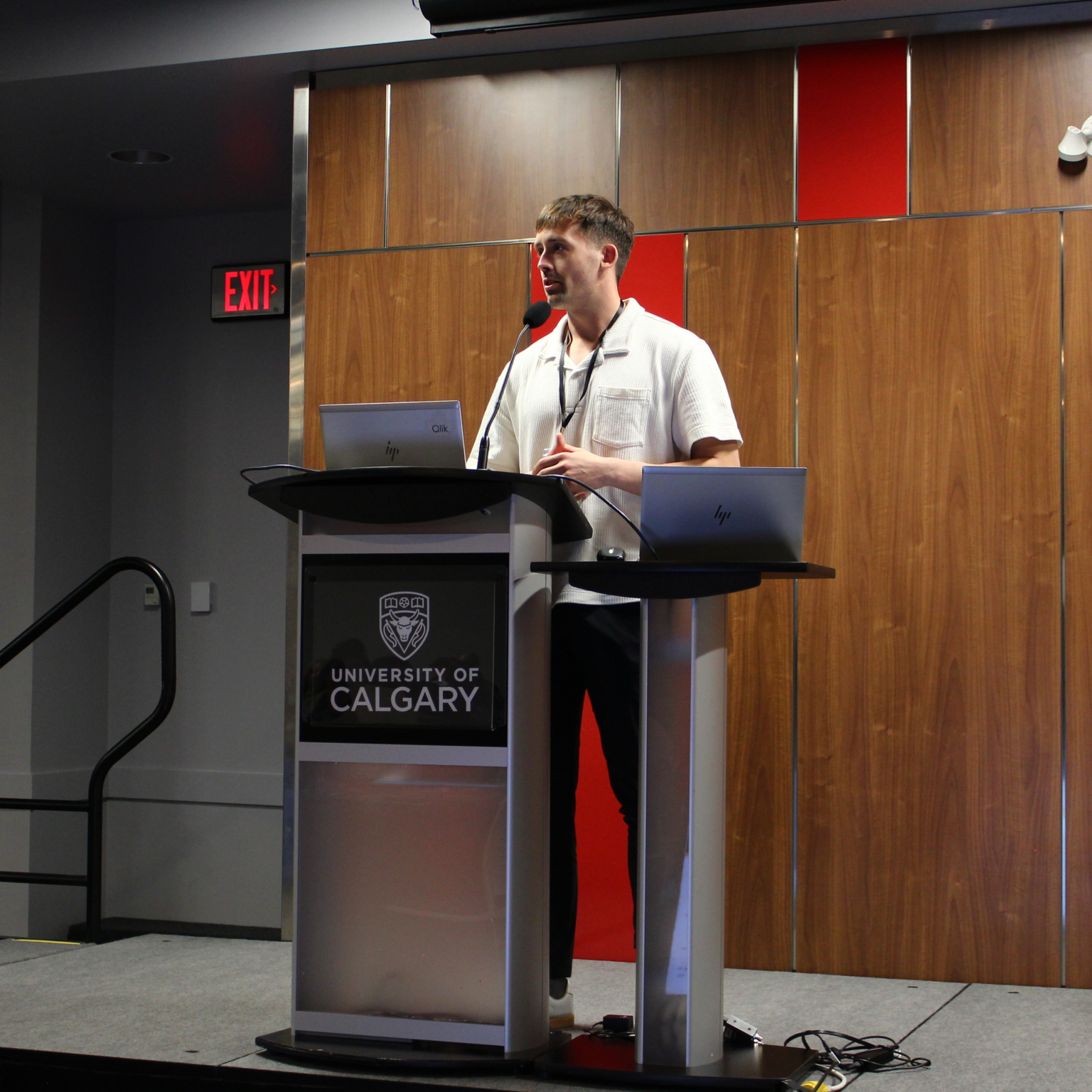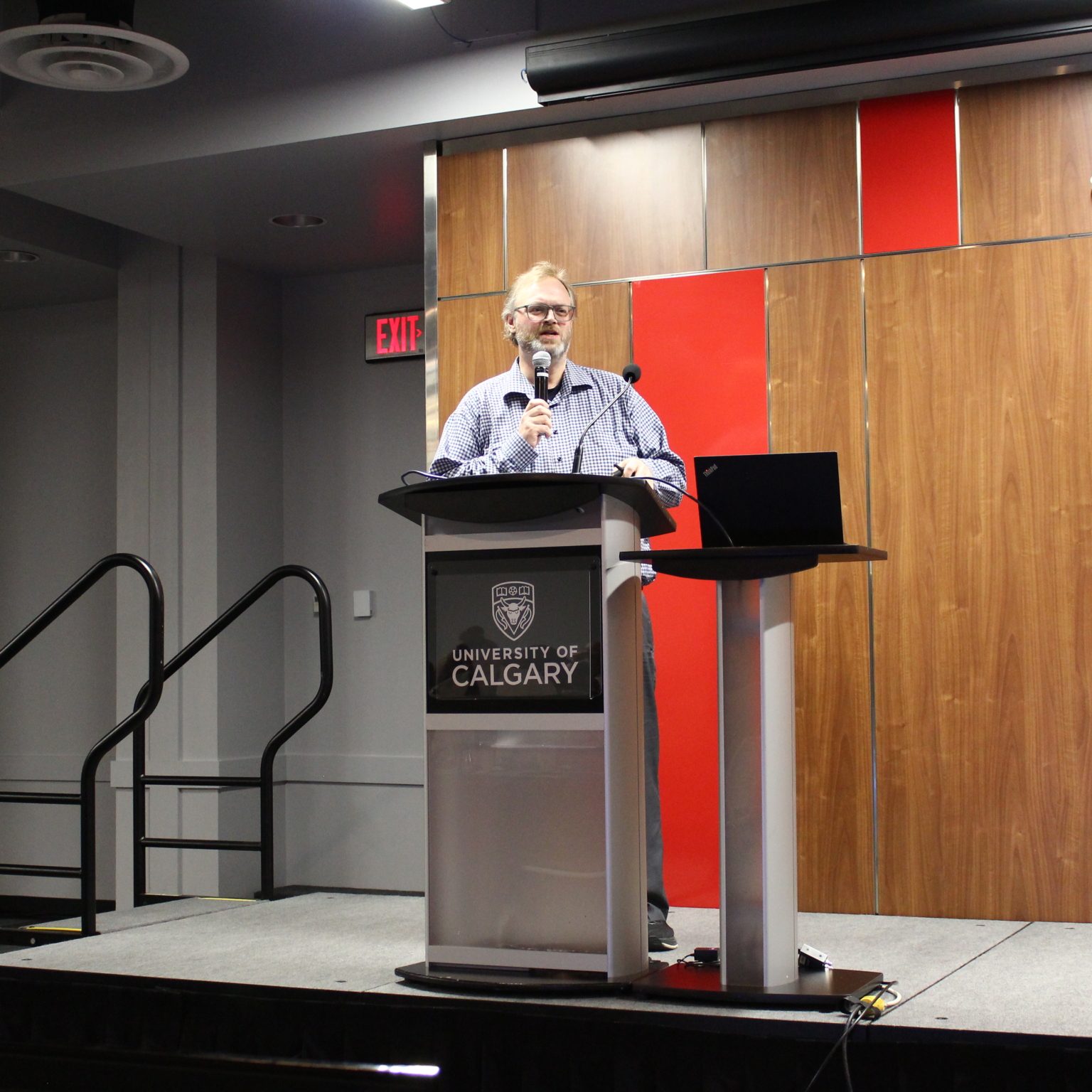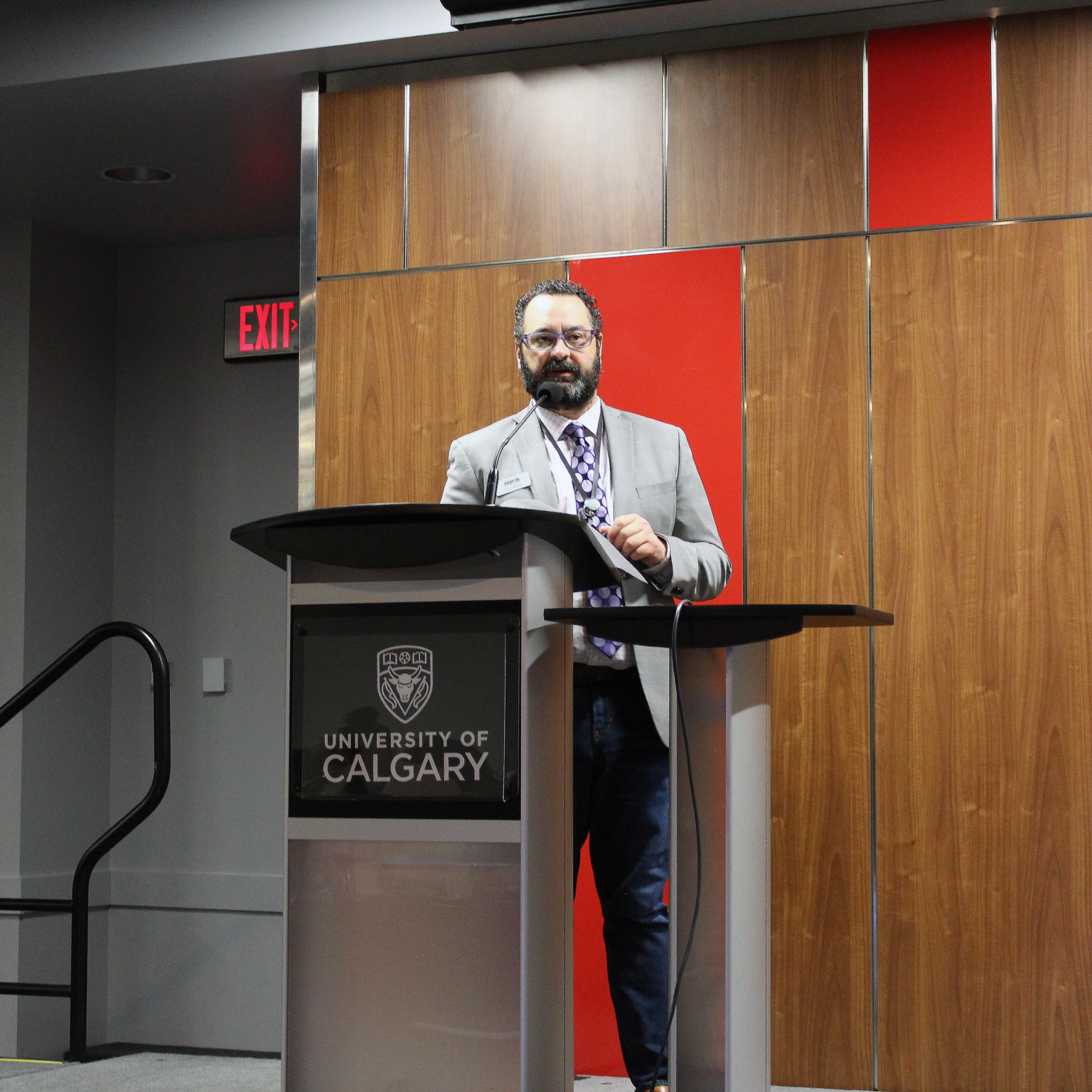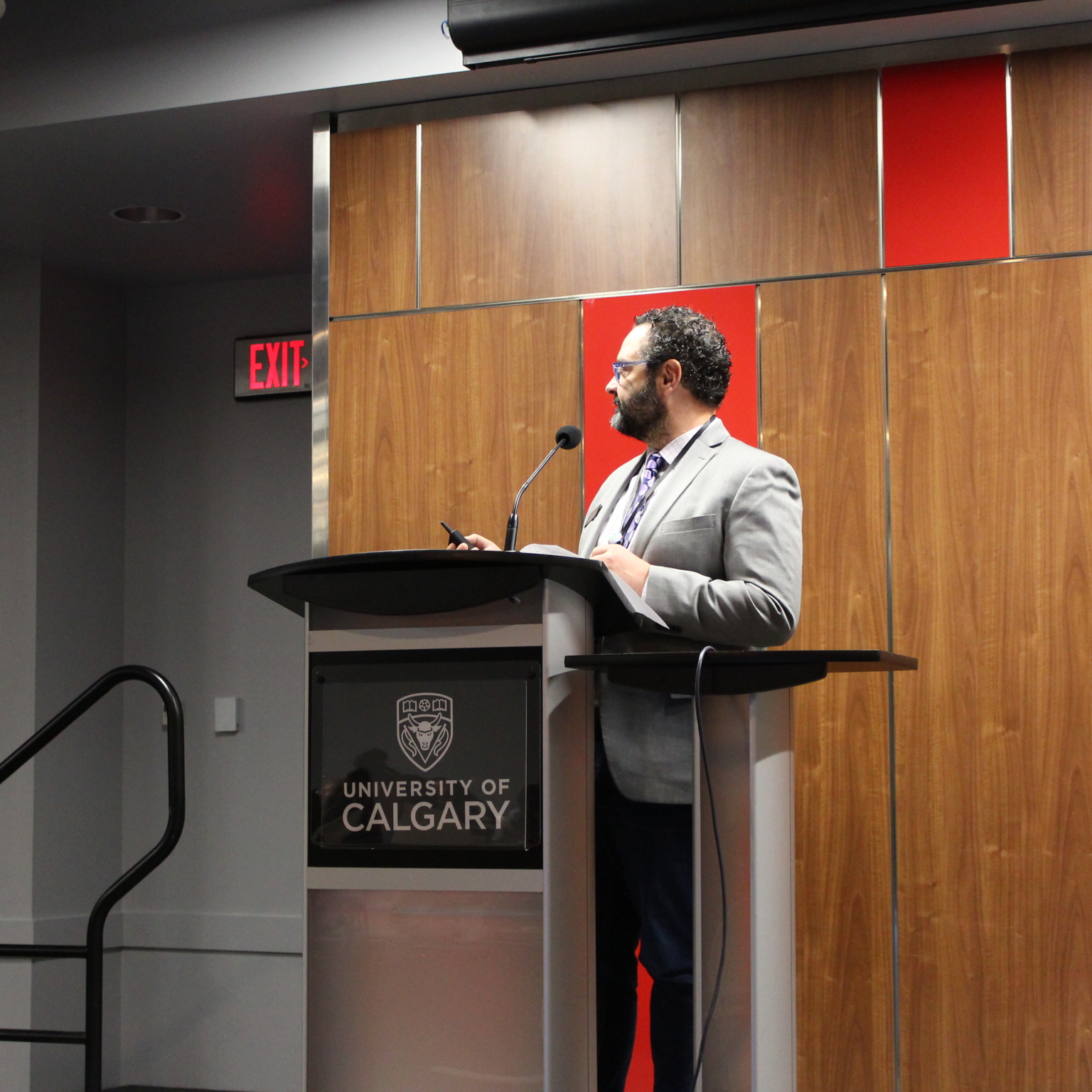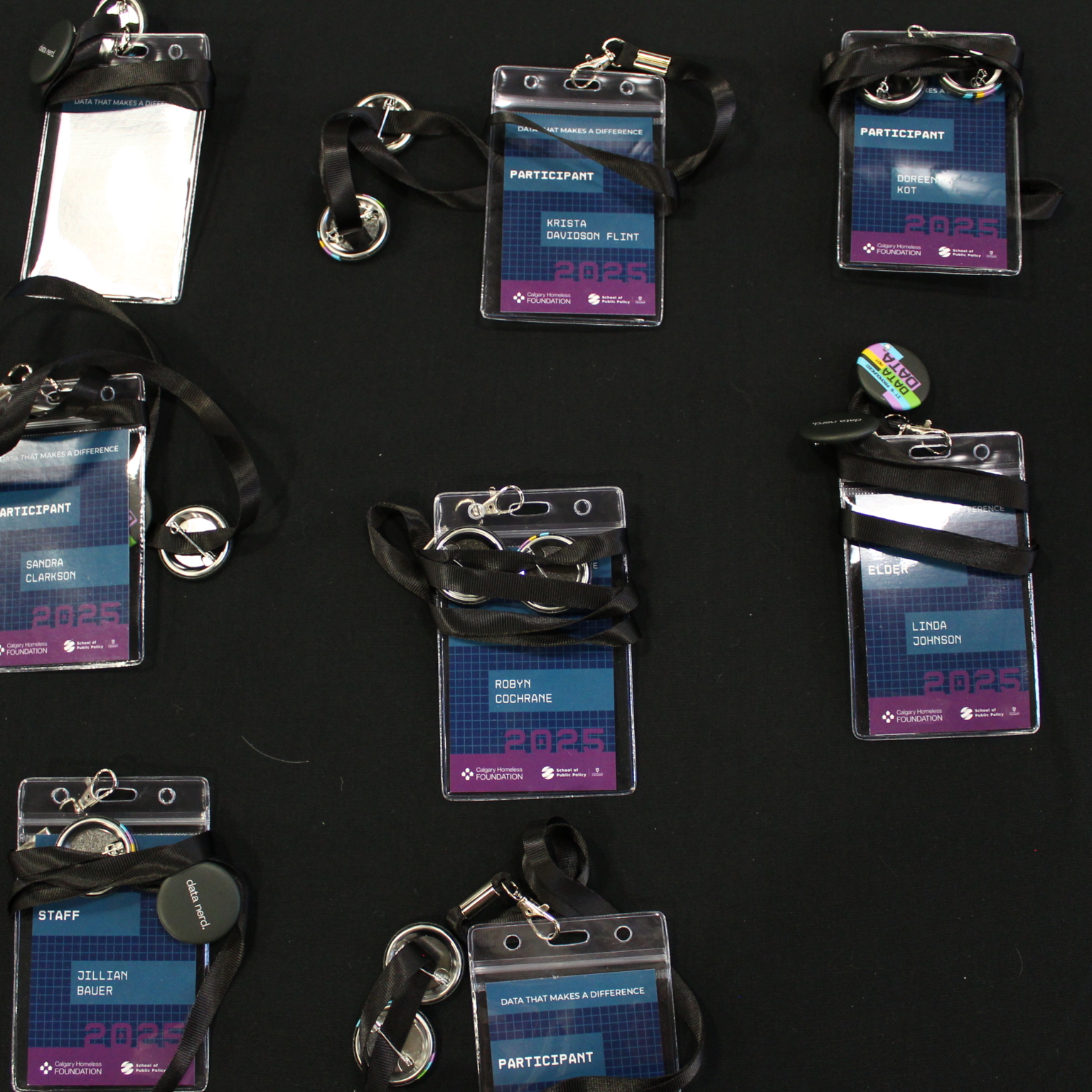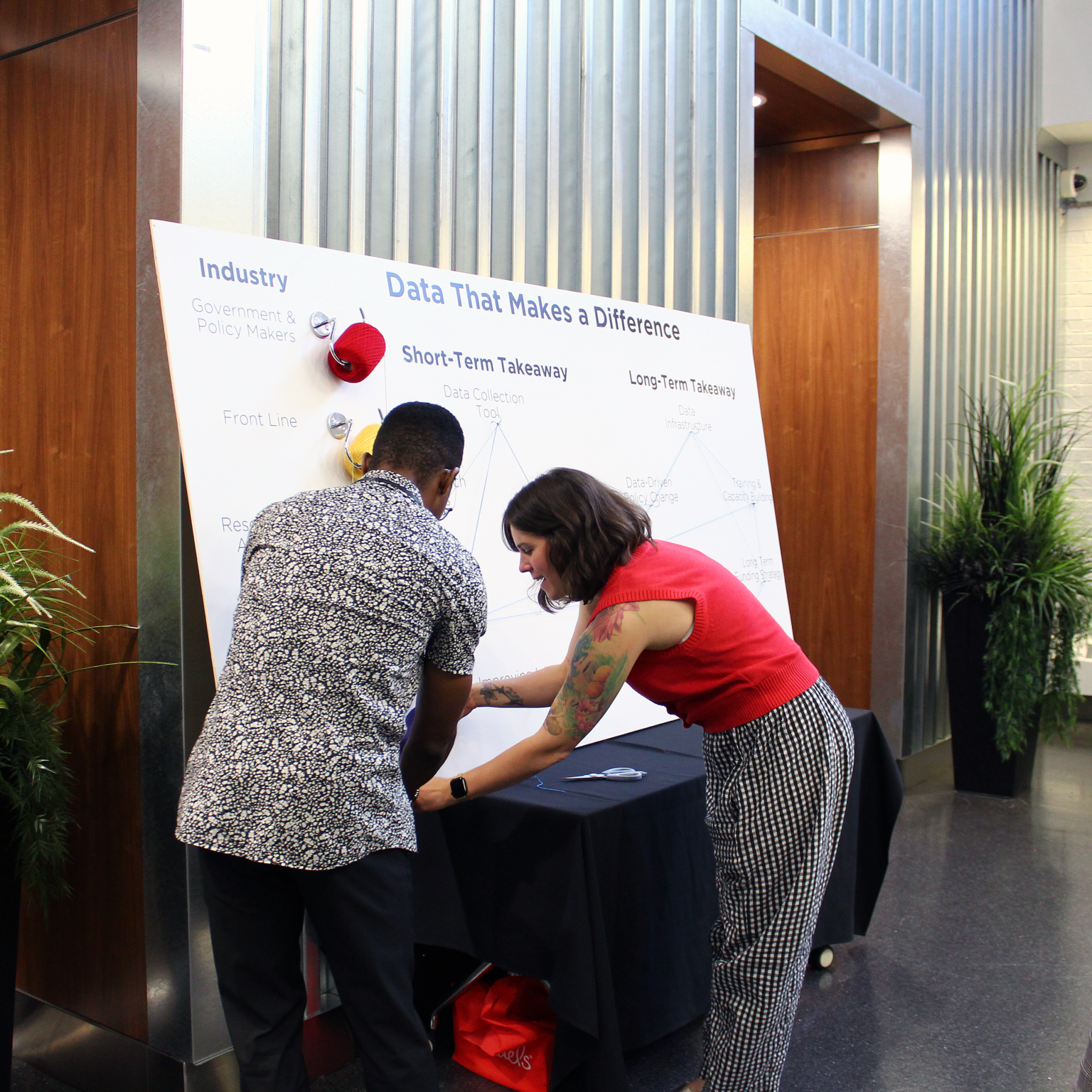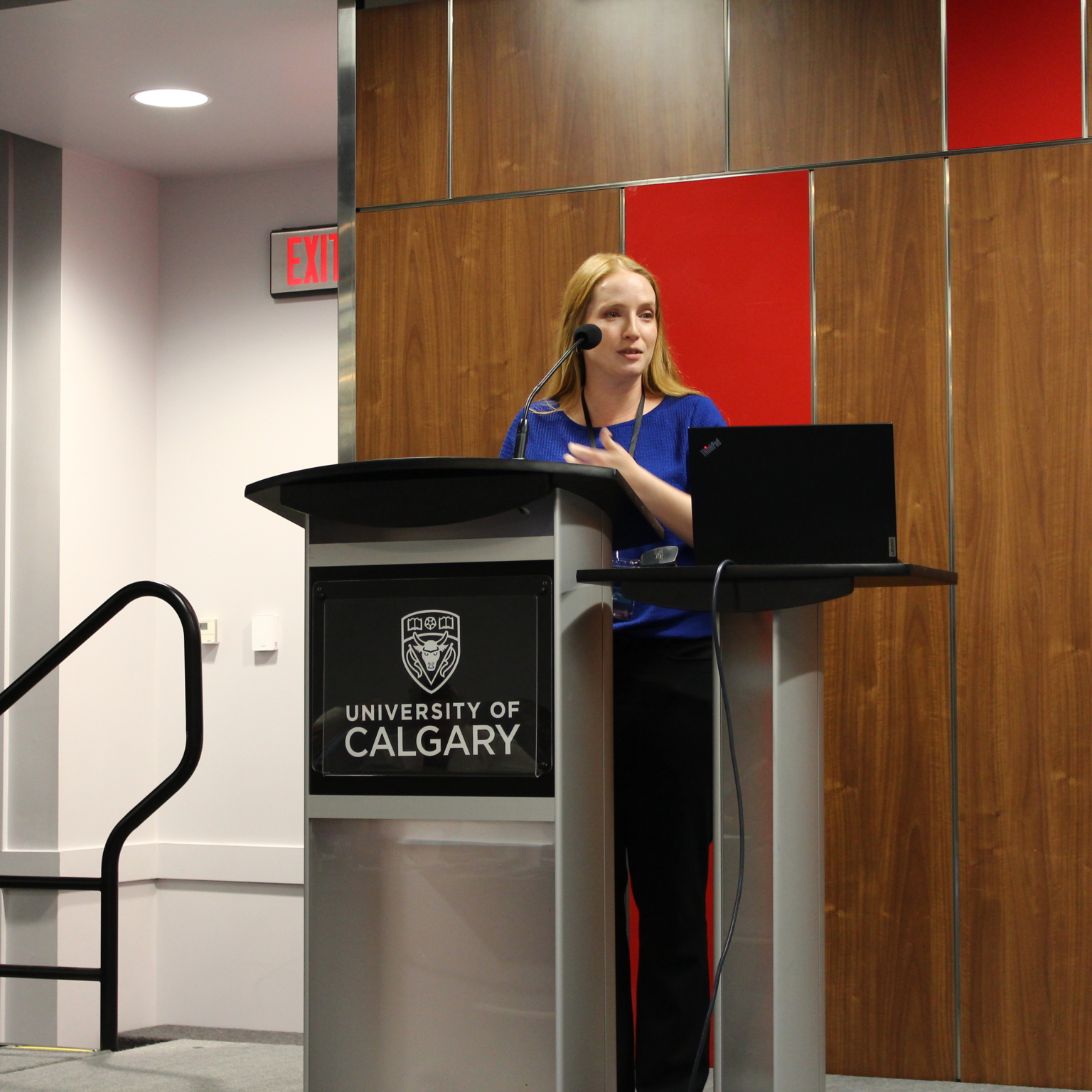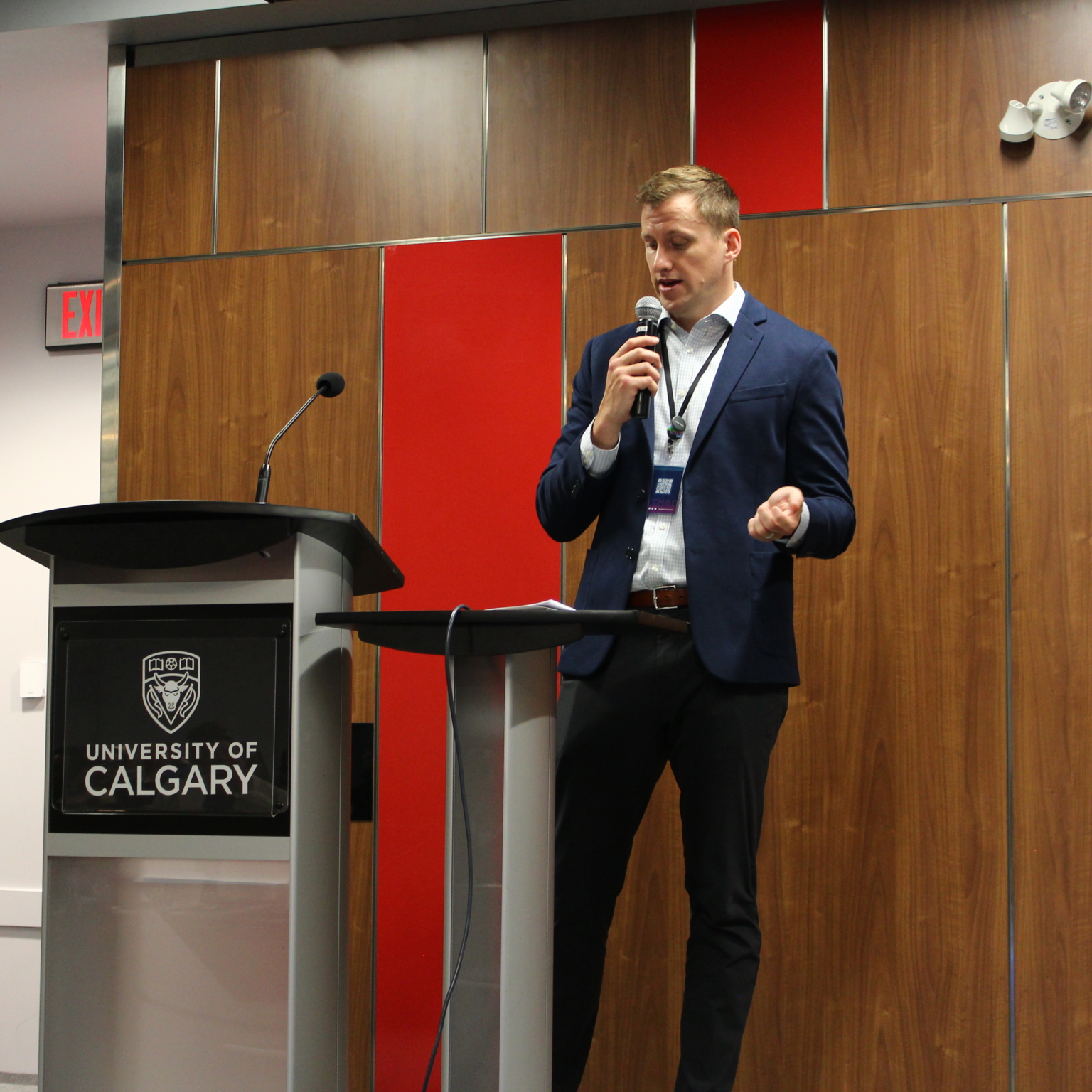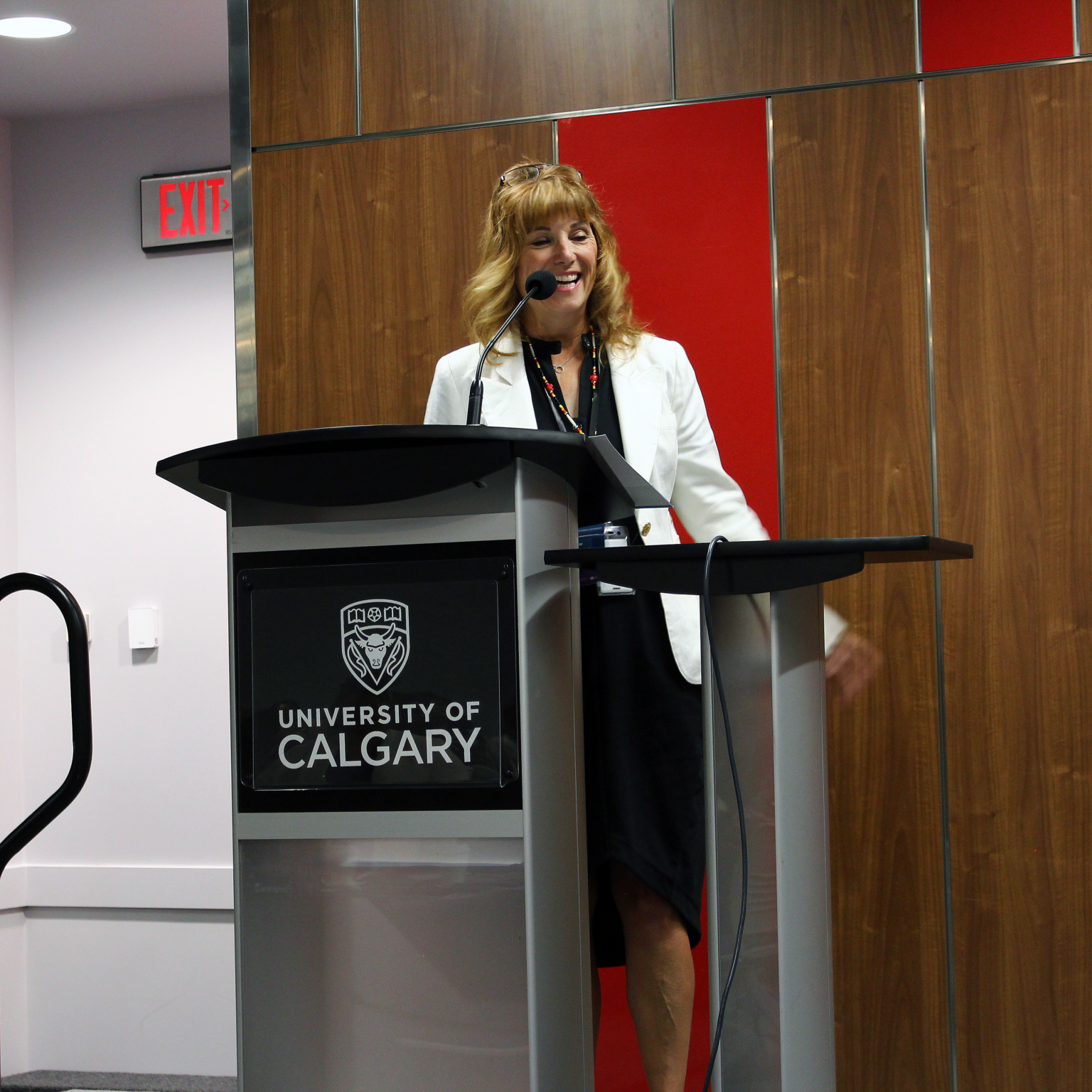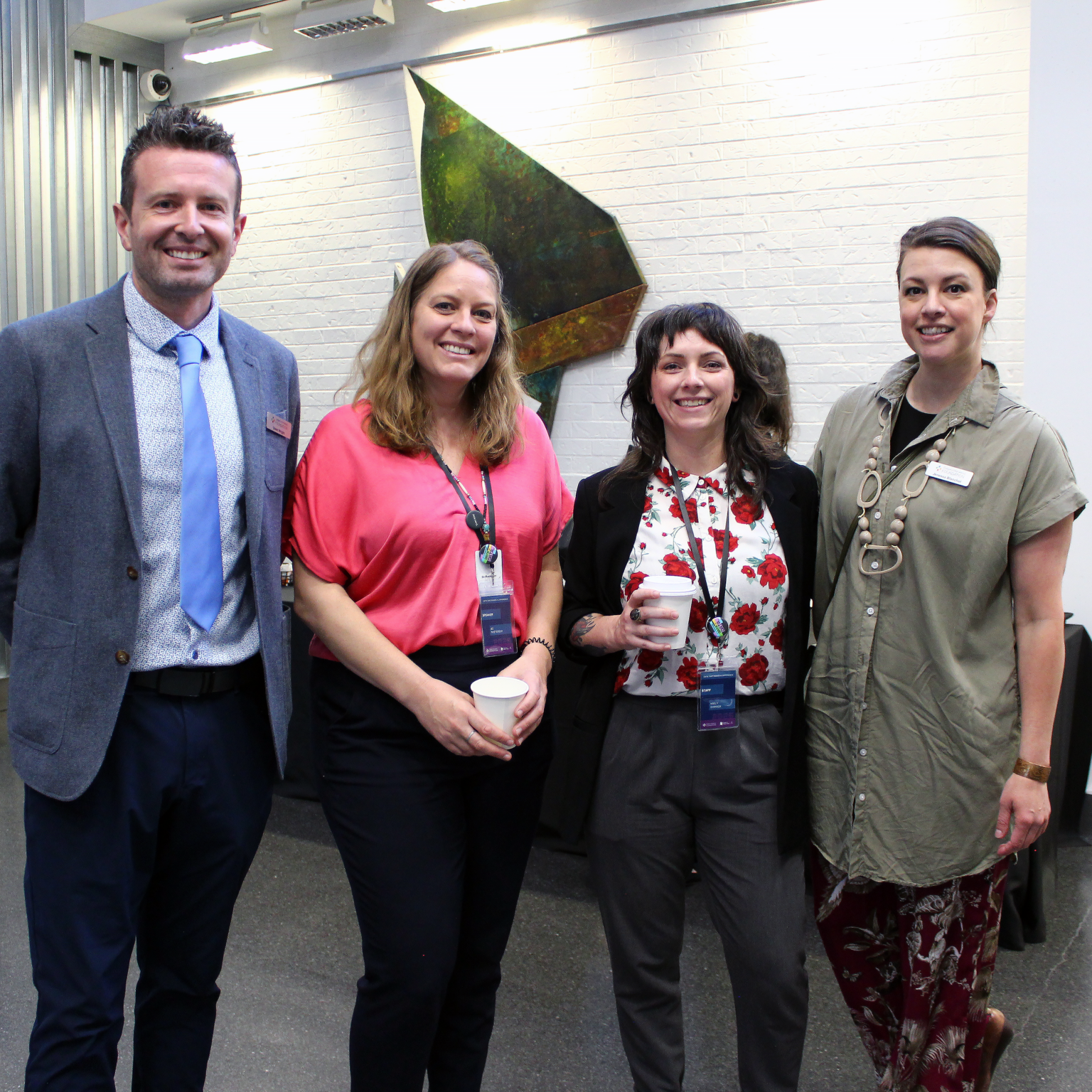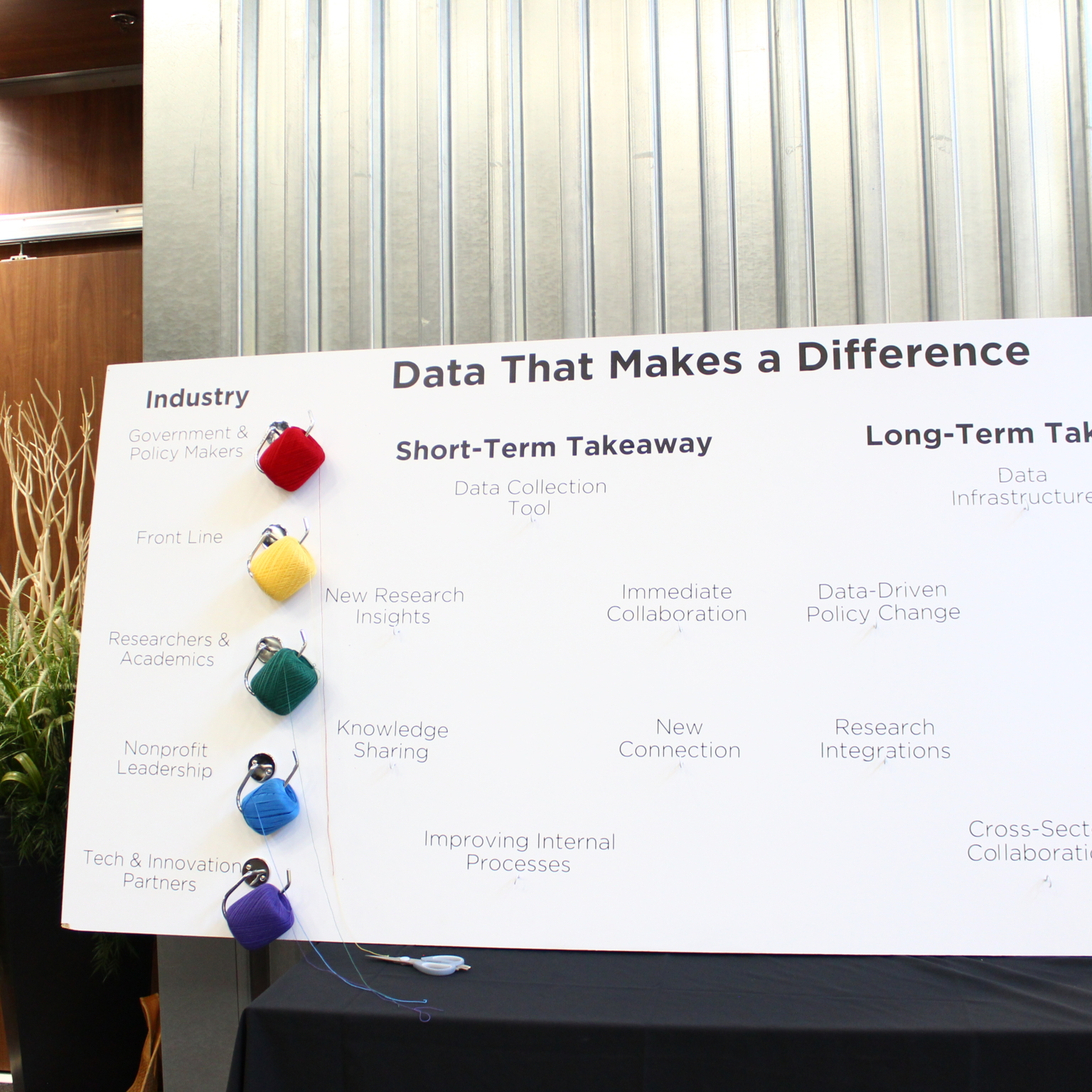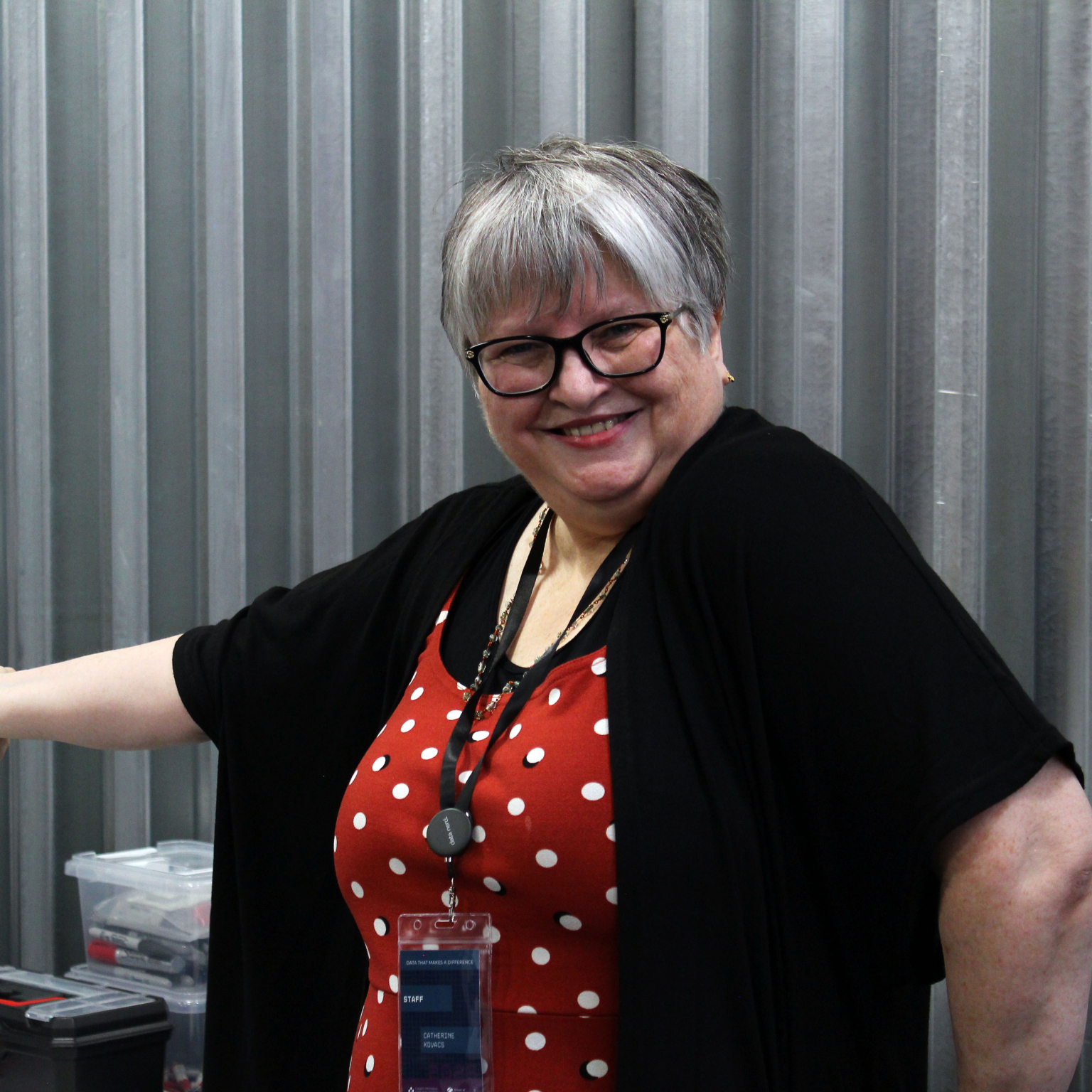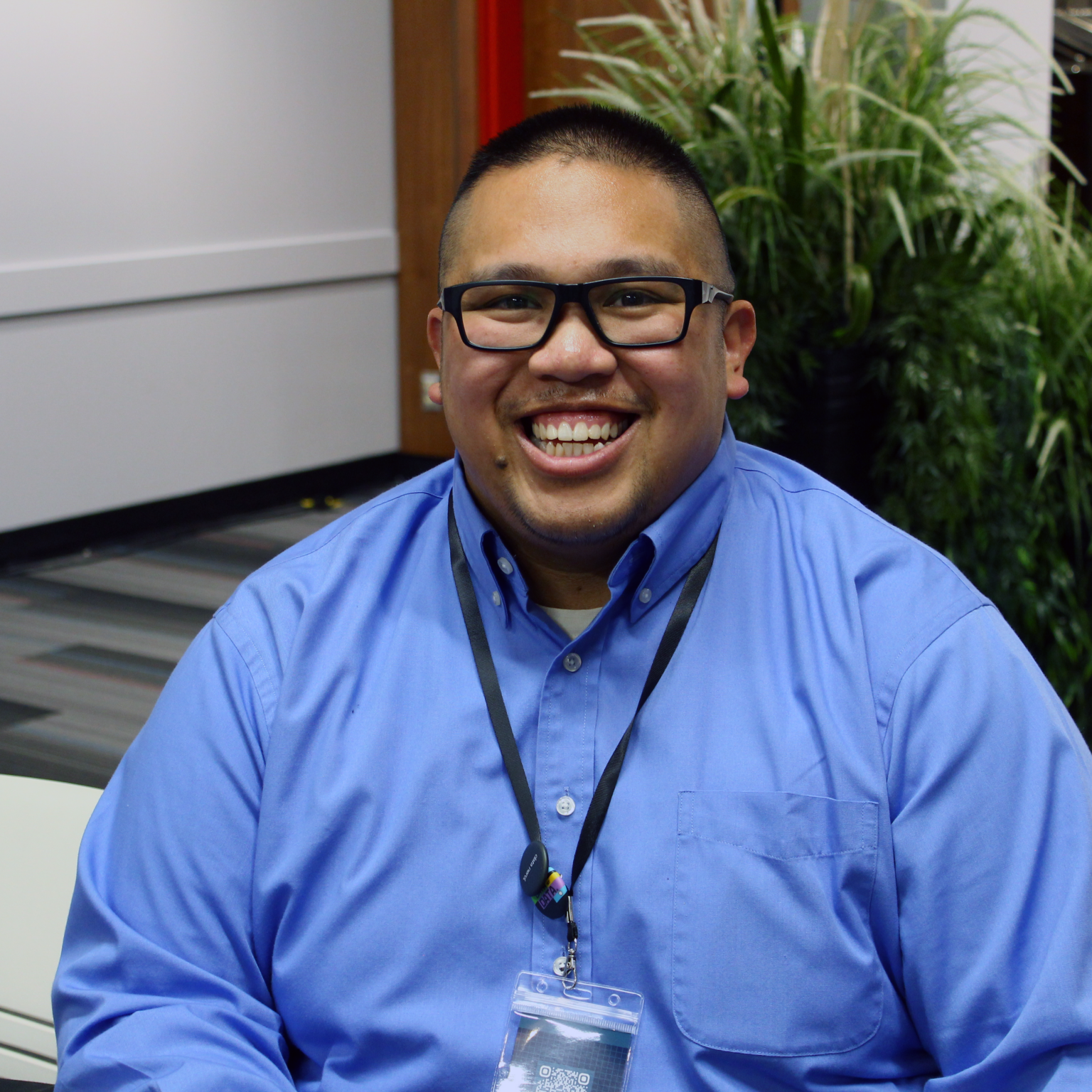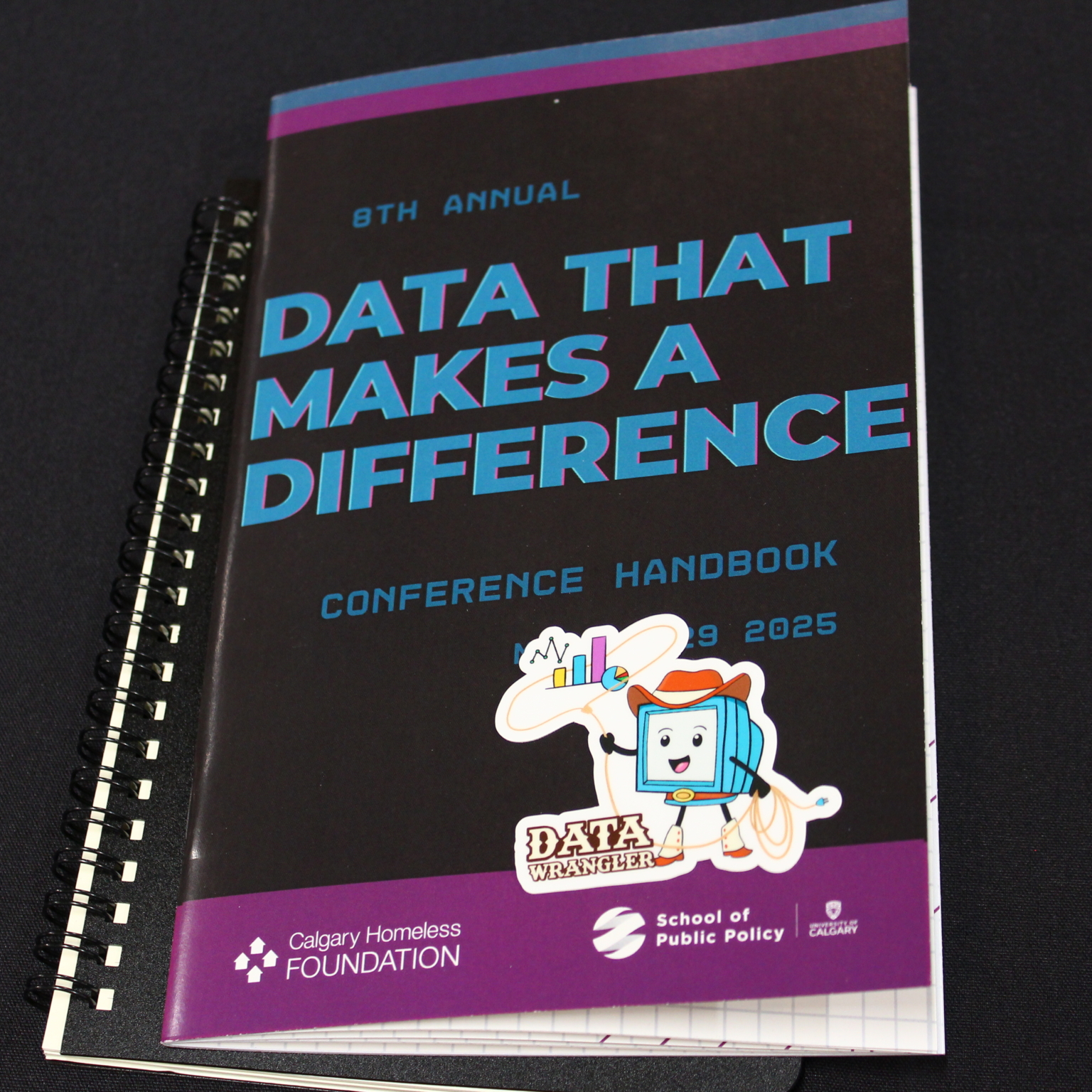Data That Makes A Difference
Calgary Homeless Foundation and The School of Public Policy hosted the 8th Annual Data That Makes a Difference. This two-day national conference brings together data professionals, service delivery partners, and researchers to exchange insights and learnings about the data-driven innovations that are transforming the homeless-serving system of care.
How does data inform the work of service and program providers in the homeless serving sector?
Under this umbrella, there are three key areas of focus:
Impactful Data – Practical Applications and Sector Insights:
Exploring how specific data has been effectively applied and made a tangible difference across the homeless serving sector.
Current Trends – Emerging Research and Data Connections:
Highlighting the latest advancements, trends, and newly identified connections in data that are driving change.
Data Gaps and Unasked Questions: What’s Needed for Progress?
Identifying the critical data we still need, and the important questions we should be asking to unlock new opportunities for impact.
Heath Priston
The impact of centralized shelter access data: a view from Toronto’s shelter and allied services system.
View Speaker’s Bio
Heath Priston is manager of a data, analysis and reporting team in the Toronto Shelter and Support Services division in the City of Toronto. Trained as an urban geographer and urban planner, he has worked to support the use of data to address community and social policy issues throughout his career in freelance consulting and municipal public service.
View Presentation
Click the link below:
Ron Kneebone
Food Bank Use As a Predictor of Homelessness
View Speaker’s Bio
Ron Kneebone is Director of Social Policy Research in the School of Public Policy at the University of Calgary. He leads a very small team of researchers investigating issues related to poverty, homelessness, domestic violence, and immigration. He and his team specialize in giving large administrative data sets the opportunity to reveal the truth about social problems and what may be effective public policies for addressing them.
View Presentation
Click the link below:
Lucie Richard
How research in Toronto about cold-related injuries and hospital visits to avoid cold exposure has been leveraged to drive policy change in Toronto’s winter service planning.
View Speaker’s Bio
Lucie Richard is an Adjunct Scientist at MAP Centre for Urban Health Solutions in Toronto. With expertise in leveraging primary, secondary, and integrated data sources, she develops and uses novel approaches to extract actionable insights about the health and healthcare needs of people experiencing homelessness. She led the development and validation of a low-burden, cost-effective method to identify homelessness within health administrative data, which was used in recent work on cold-related injuries and cold exposure related emergency visits to help make the case for improved winter service planning in Toronto.
View Presentation
Robert Falconer
Simple Tools for Collecting Data on Sensitive Issues, Behaviours, and Outcomes.
View Speaker’s Bio
Robert Falconer is a Research Fellow at the University of Calgary School of Public Policy and Doctoral Fellow at the London School of Economics. His work focuses on the evaluation of social programs, especially those dealing with sensitive issues or behaviours. This includes describing the role of social agencies in supporting newcomers to Canada, and a recent experiment in the UK on the impact of refugee sponsorship on British attitudes towards migration. He holds a Master of Public Policy from the University of Calgary, and an Honours Bachelor of Arts from the University of Toronto.
View Presentation
Click the link below:
Data Quality and Homelessness: Simple Tools for Collecting Data on Sensitive Items
Kevin Webb
Leveraging Real-Time Data for Operational Improvements.
View Speaker’s Bio
Kevin Webb is a dedicated leader in Calgary’s homelessness and housing sector, focused on creating sustainable housing solutions for vulnerable populations. As a senior leader at the Calgary Drop-In & Rehab Centre, he oversees the Emergency Shelter, Housing Programs, and mixed-market residential buildings, ensuring a housing-focused, recovery-oriented approach that prioritizes dignity, stability, and long-term success. Kevin leverages data-driven decision-making to enhance program effectiveness, optimize resources, and drive system-wide improvements. Through his strategic vision and operational expertise, he remains a driving force in Calgary’s efforts to end homelessness and improve housing accessibility
View Presentation
Click the link below:
Rachel Butler Campbell
Everyone Counts and Beyond: Past and Future PiT Counts in the Broader Landscape of Homelessness Data.
View Speaker’s Bio
Rachel Campbell is a senior policy analyst in the Homelessness Analysis Team at Housing, Infrastructure and Communities Canada (HICC), where she leads the nationally coordinated point-in-time counts. She has coordinated multiple point-in-time counts in Calgary and New York City. She has worked in homelessness policy and research since 2006 and holds a master’s degree in public policy from the University of Calgary.
View Presentation
Michael Lenczner
View Speaker’s Bio
Michael Lenczner is the CEO of DARO. He has over 20 years of experience in the areas of civil society, use of tech & data and of Open Government. He is a frequent collaborator on academic-community research partnerships and regularly serves on nonprofit boards and advisory groups related to technology, democracy, and civil society. Since 2018, Mike has been a Fellow at Carleton University’s School of Public Policy and Administration.
As an advisor to the Making the Shift initiative, he focused on the ways that the homelessness sector can better leverage existing data to understand and prevent youth homelessness.
View Presentation
Click the link below:
Michael Grant (Co-Presenter, CHF)
Coordinated Access and Assessment (CAA) triage tool.
View Speaker’s Bio
Michael started his career as a Housing Case Manager with the Calgary Alpha House Society supporting vulnerable Calgarians with complex addictions and mental health issues. In 2017, Michael transitioned to the Calgary Homeless Foundation as a practicum student and was hired as a System Planner, where he remained until 2022. Michael then transitioned to the Distress Centre for a year to act as the Program Manager for the Coordinated Entry Team at the SORCe. In 2023, Michael transitioned back to CHF with his current role as Manager of the System Planning Team.
Mike was born and raised in Calgary and has a very soft spot for the city and its community, especially the music scene. He has also been a part of Calgary’s music community since he was a teenager, where he has been a part of multiple bands that have released records and travelled to various parts of North America and Europe. Mike also enjoys playing golf, watching documentaries, cooking, and spending time with his friends and family.
View Presentation
Click the link below:
Stephen Reilly (Co-Presenter, CHF)
Coordinated Access and Assessment (CAA) triage tool.
View Speaker’s Bio
Stephen is a dedicated Data Visualization Analyst with a diverse academic background and a passion for making data accessible to everyone. He holds three degrees: a Bachelor of Arts in Music, a Master of Arts in Music, and a Master of Science in Data Science, the latter of which he completed in 2021 at the University of Liverpool.
Since joining CHF in 2022, Stephen has led the development and overhaul of all agency-facing dashboards, significantly enhancing their usability and effectiveness. His work ensures that data is both accessible and comprehensible for all users. In his spare time, Stephen enjoys playing soccer, exploring Calgary and getting out to the mountains.
View Presentation
Click the link below:
Dallas Smith (Co-Presenter, CHF)
Coordinated Access and Assessment (CAA) triage tool.
View Speaker’s Bio
Dallas Smith recently stepped into the role of Manager of Coordinated Access at Calgary Homeless Foundation. Over the past two years as a System Planner, he supported major partners like Trellis and advanced key projects such as the Coordinated Entry Tool (CET). A strategic and collaborative leader, Dallas brings strong system insight to this years Data That Makes a Difference. Fun fact, he’s also a lacrosse enthusiast and a history buff you don’t want to challenge in trivia.
View Presentation
Click the link below:
Chantel Large (Co-Presenter, Miskanawah)
Oral Truthing.
View Speaker’s Bio
Chantel Large is Cree from Saddle Lake, Alberta although she has been a visitor in Mohkinstsis (Calgary) for most of her life. Chantel graduated from the University of Calgary with a Masters in Social Work in 2015. She currently works as the Cultural Services Manager at Miskanawah and she’s a Sessional Instructor at the University of Calgary Faculty of Social Work.
Chantel has a lot of diverse experience in the field of social work including working as a child, youth and family support worker; a mental health therapist; and in chronic kidney disease research. She has been invited to present as a keynote speaker and in panels and forums across the country on a variety of topics. She is the recipient of the 2023 Students’ Union Teaching Excellence Award, the recipient of the 2023 Faculty of Social Work Undergraduate Teaching Award, and the recipient of the 2023 University of Calgary Teaching Award for Indigenous Ways of Knowing.
Chantel has been described as an “Edgewalker” due to her ability to walk in two worlds and build bridges between western and traditional knowledge systems. In her role as Cultural Services Manager, Chantel has had the privilege to learn from many Elders and she takes her role as an Elder’s helper very seriously. In Chantel’s family, the three generations that came before her attended residential school so she describes her greatest accomplishment to be raising her four children alongside her husband.
View Presentation
Click the link below:
Paige Cairns (Co-Presenter, Miskanawah)
Oral Truthing.
View Speaker’s Bio
Paige Cairns was born and raised in in Mohkinstsis (Calgary) and has resided in Airdrie for the past 12 years. Adopted at a very young age, Paige has little information about her heritage however started her journey to understanding Indigenous ways of knowing and being over a decade ago.
Paige holds a Bachelor of Child Studies and has held leadership positions in the human services sector for the past 15 years. She spent the early years of her career working with high risk, homeless youth before finding a passion for family unification. Paige has dedicated much of her career to addressing the over representation of Indigenous children in the Child Welfare system.
Paige has worked with miskanawah for the past 12 years in varying leadership roles. Currently she is the manager of Nipsisak (cree for Willows) which encompasses miskanawah’s housing and homelessness diversion programs.
Paige is very involved in her community of Airdrie and has organized an annual fundraiser for the Airdrie Foodbank for the last 10 years, raising over $55,000. She has been nominated for “Airdrie Woman of the year” twice for her community contributions.
Paige is a proud single mother to an 11-year-old boy with Cree ancestry. She is committed to raising him with Indigenous values, following natural laws and belief systems. She is incredibly grateful to be able to raise her son with access to, and support from a ceremonial family.
View Presentation
Click the link below:
Diane Dumais (Co-Presenter, Alpha House)
Examining Sober-Living Supportive Housing: Reducing Shame and Improving Outcomes.
View Speaker’s Bio
Diane has 36 years of experience working in the addictions field. As a Program Director of Calgary Alpha House Society, she has dedicated her career to supporting individuals who lives have been affected by addictions and mental health. In April 2024, she had the privilege of launching the Providence Sober Living Program, offering supportive housing to individuals ready to make a positive change in their lifestyle. Through development of meaningful rapport with the individuals she serves, Diane acknowledges the significance of culture in a recovery journey and strives to keep those considerations at the centre of her work. Her passion for developing effective programming and providing essential resources has allowed her to empower individuals on their path to recovery.
In addition to her work at Alpha House, Diane has recently become a reviewer for the Canadian Accreditation Council of Human Services.
View Presentation
Click the link below:
Examining Sober-Living Supportive Housing: Reducing Shame and Improving Outcomes.
Tom Bain (Co-Presenter, Alpha House)
Examining Sober-Living Supportive Housing: Reducing Shame and Improving Outcomes.
View Speaker’s Bio
Tom has been with Calgary Alpha House since 2022 and currently serves as the Program Manager at Providence House. With a strong commitment to client care and recovery, Tom brings valuable experience and passion to his role. Outside of work, Tom is a proud father of two and enjoys spending quality time with his family, especially with his dogs. He is also passionate about travel and dedicated to fostering positive change within the recovery community.
View Presentation
Click the link below:
Examining Sober-Living Supportive Housing: Reducing Shame and Improving Outcomes.














